|
Exercise
Jupiter And Juno
RAF Museum
Short Letters 8
Exercise (9 July 2016)
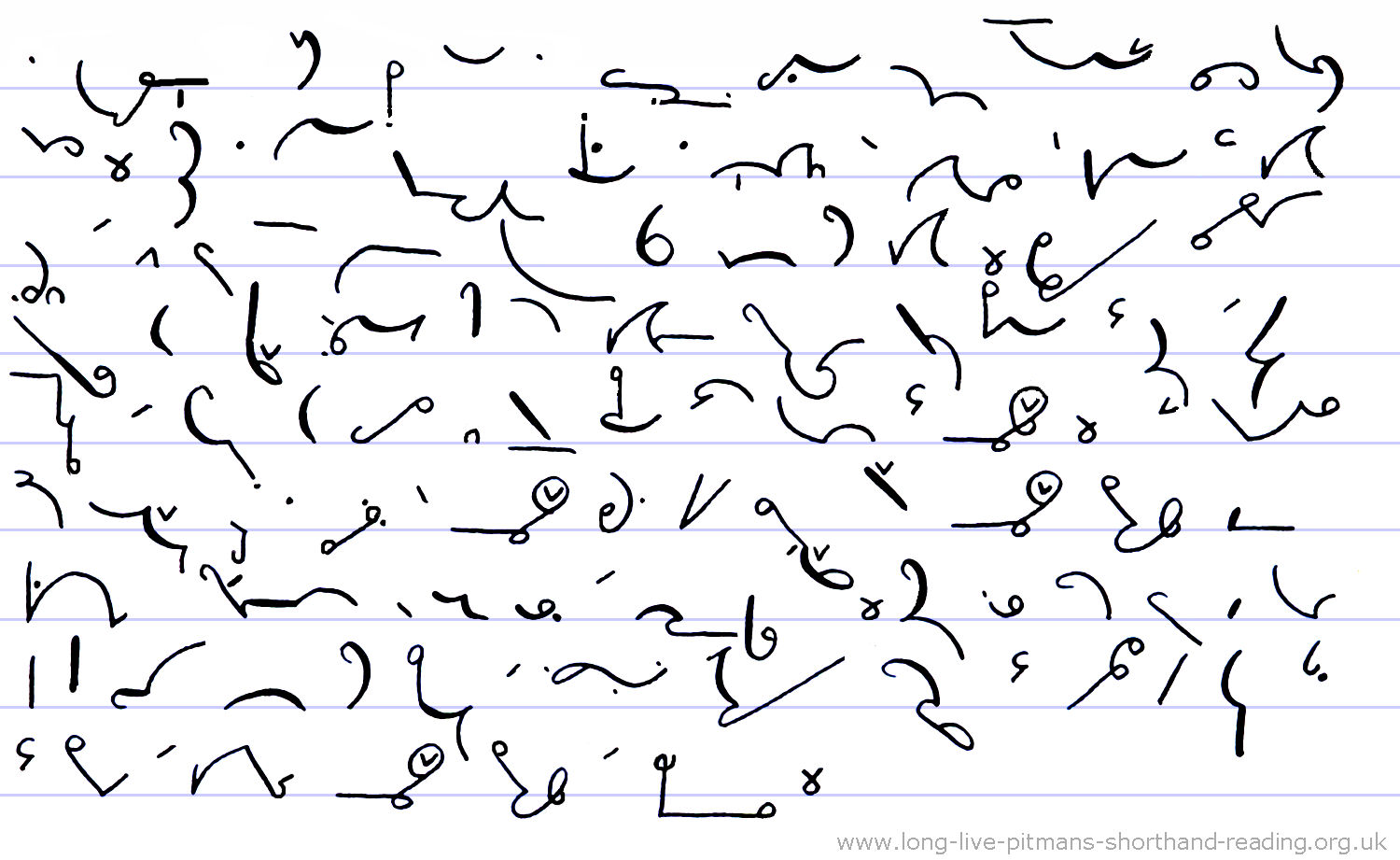
A few weeks ago* I
was sitting in a clinic waiting room, accompanying someone for their
appointment. There was a long bookshelf containing a multitude of
leaflets on dealing with health issues and how people can look after
themselves to improve their health. As these were hospital publications,
they advised consulting the doctor or healthcare professional before
starting with the easier and gentler activities and developing* them
once you become stronger* and
more familiar with the exercises. Patients were invited to attend a
series of exercise sessions which are supervised by exercise
specialists, who can tailor the programme to individual needs and
medical conditions. There were* comments
from people who felt it had greatly improved their
strength and stamina, and they were very pleased with the results, which
they had achieved with the support and help of the exercise specialists
and instructors.
* Omission
phrase "few wee(k)s ago" "there (w)ere"
* "developing" This optional contraction is for "development" but it is
safe to use it for the verb as well
* "stronger"
Optional contraction omitting the hard G sound
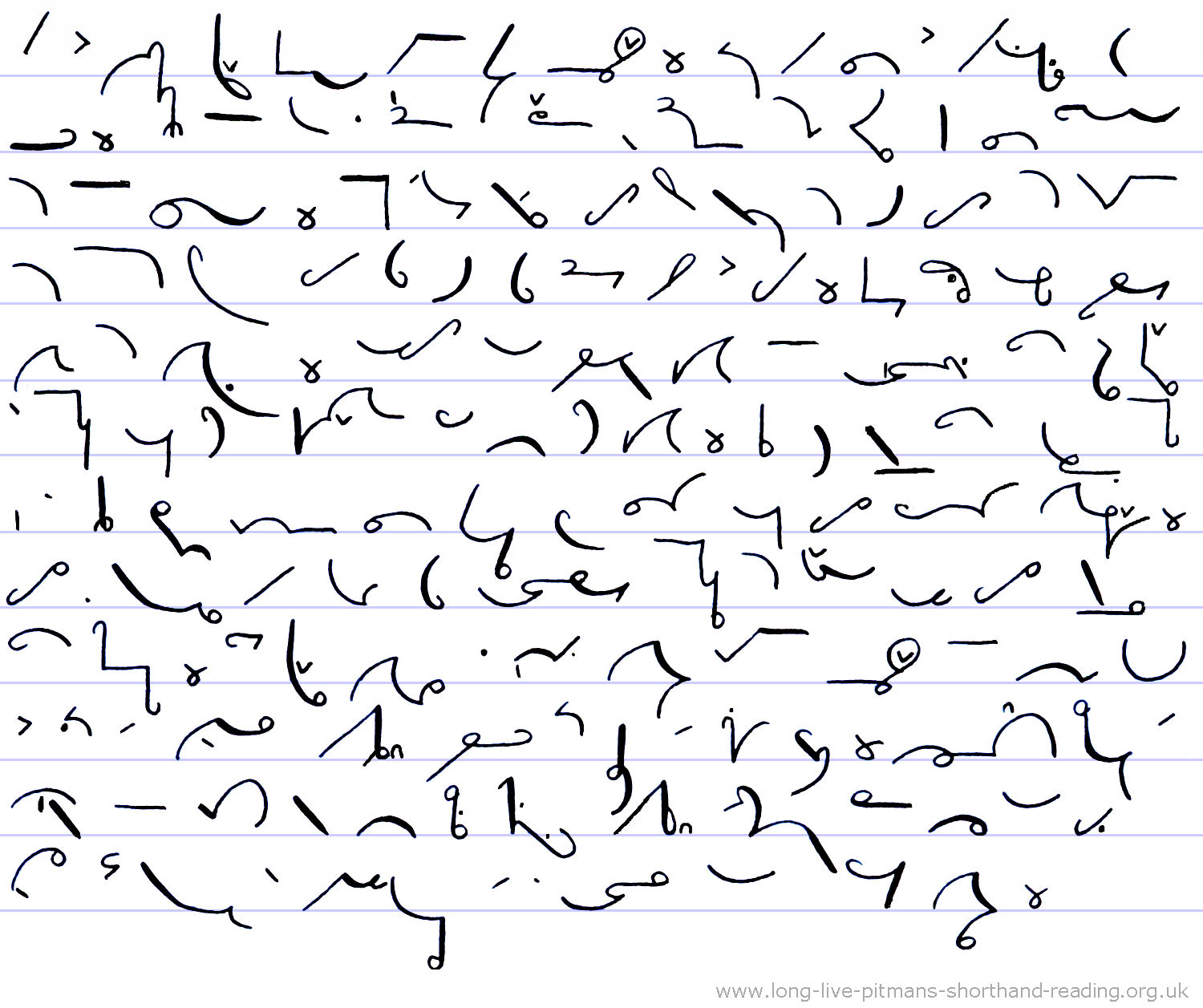
Much of the literature advised taking regular gentle exercise. Here are
some of the recommendations they gave. Go for a walk, cycle to work or
the shops, do some gardening or go swimming. Get off the bus one stop
before your usual one, or park your car further away than usual, then
walk the rest of the way. Take the stairs instead of using the lift or
elevator. Anyone in reasonable health can incorporate* more
of these types of activity into their daily life* in
order to* improve
their health. It is easy to become more physically active, but a
decision has to be made* to
make some changes, however small, into one's normal lifestyle. Once the
benefits are felt, then increasing the activities or finding new ones
becomes more attractive. According to the* advice
leaflets, a moderate level of regular exercise can improve the
efficiency of the heart and lungs, reduce the risk of heart disease and
control blood pressure*.
Muscular strength and mobility can also be improved,
stress and depression reduced, and there may be significant improvements
in weight loss, with the benefit of renewed confidence and an increase
in energy levels.
*
"incorporate" The P stroke is the "first up or downstroke" and is
therefore in position, on the line for 3rd position, as it is halved.
* "daily life" This could also be written with only one L stroke, as an
omission phrase, but this version is clearer
* Omission phrase "in ord(er to)" "according (to) the" "blood (pre)ssure"
* "has to be made" Ensure the first circle is well above the line, as
"is to be made" could also make sense in some contexts
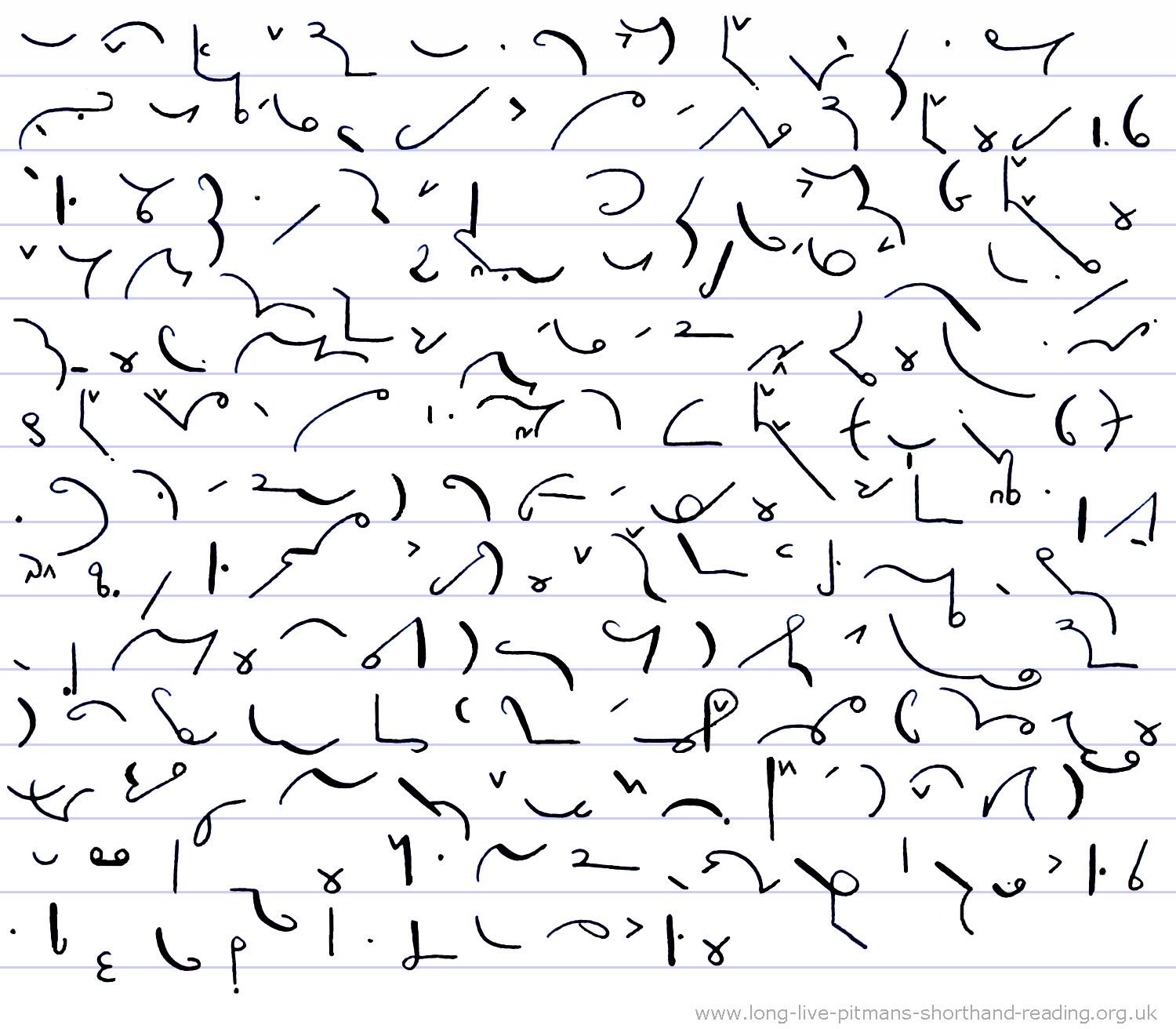
In my twenties I worked in a very noisy typing pool, which was a central
location in the office building where all the letters and reports were
typed. We did this all day, unless there was an hour or two on the
duplicating machine, which was even noisier than the typewriters. I only
left the room to take shorthand in the general offices, maybe for an
hour or so. Every lunchtime* I
would leave the office and walk round the shops. After a morning spent
typing piles of letters on a manual or electric typewriter (no computers* then),
the fresh air and walking was very welcome and necessary. I would take a
different route around the streets each day, regardless of the weather.
I arrived back with ten minutes to spare to eat lunch. My head was
clearer, energy was restored and the afternoon's work was more pleasant*,
having taken that break and exercised muscles other than arms and
fingers. Unfortunately* that was still long before I knew about improving
diet and so my health was not as good as it could have been*.
I had a long walk to and from the bus-stop at both ends of the day,
which is an advantage when you have been sitting at a desk for most of
the day.
* "lunchtime"
Halving for the T of "time"
* "computers" Does not use doubling in the plural, as the U diphthong
cannot be joined
* "pleasant" "pleasing" Helpful to
insert a vowel, as these are similar in outline and meaning
* "Unfortunately" Optional contraction
* "it could have been" The "could" is not phrased with the "it", in
order to show it in its true position, so it is not misread as "can"
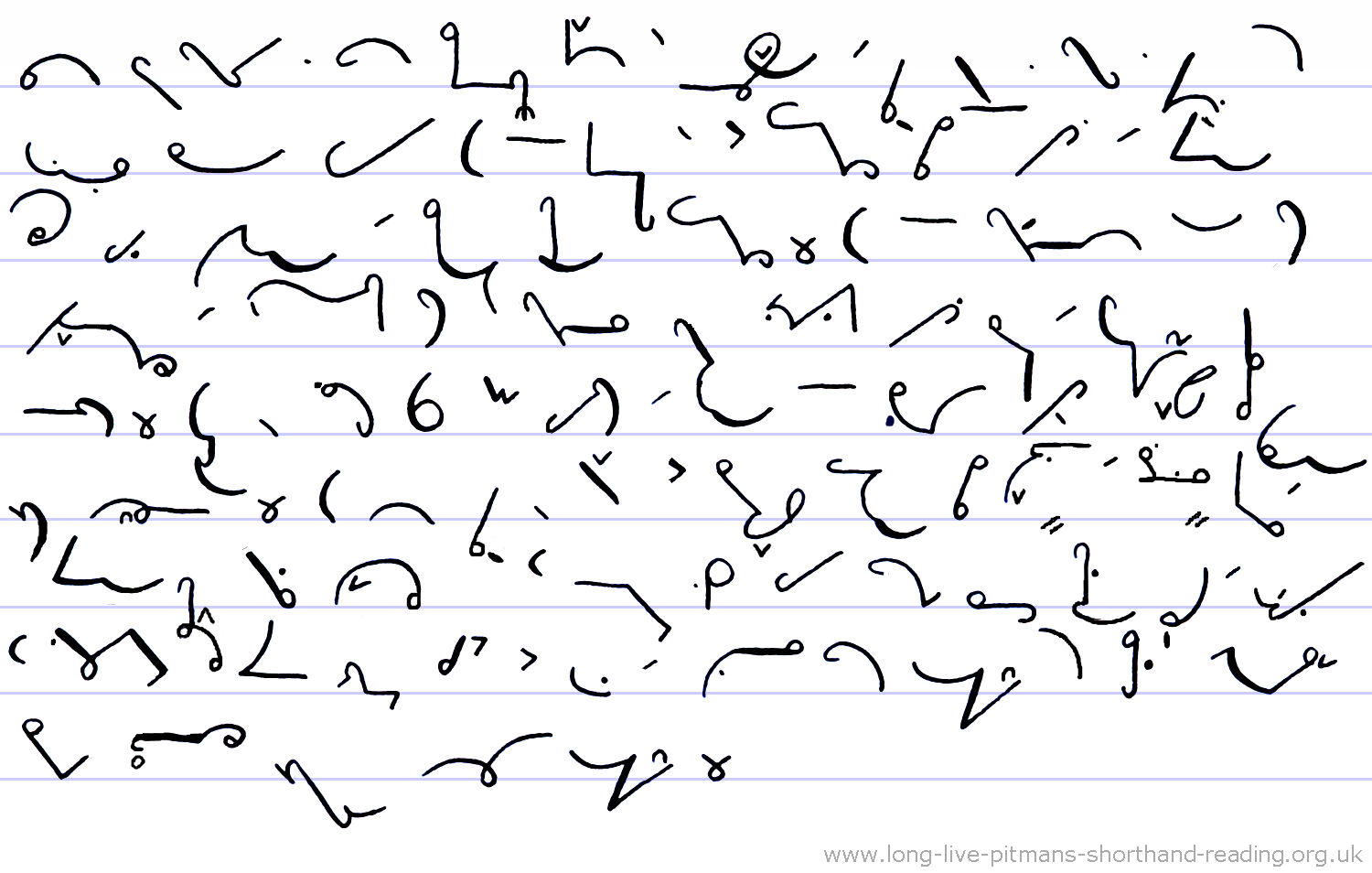
Some people prefer a more structured time of exercising and choose to
become a member of a gym or fitness centre, where they can take
advantage of all the equipment, such as running and jogging machines,
weight lifting and strength training equipment. They can programme in
their requirements* and
monitor their progress, breathing, heart rate, running speed and virtual
distance covered. They do not have to concern themselves about the
weather and can safely run whilst listening to their music. They may
choose to buy all the specialised* clothing,
such as Lycra and Spandex tops and jogging trousers, base layers that
keep the sweat away from the skin, trainer shoes and footwear* that
absorb the shock and protect the joints of the feet and legs from injury
or strain, and various support garments to prevent muscle injury.
*
"requirements" This can also be written as an intersection
* "specialised" Essential to insert the diphtong, to differentiate from
"specialist"
* "footwear" Insert the vowel in this and in "knitwear", and keep the
thickening clear in "underwear" as these are all similar in shape and
meaning (i.e. all items of clothing)
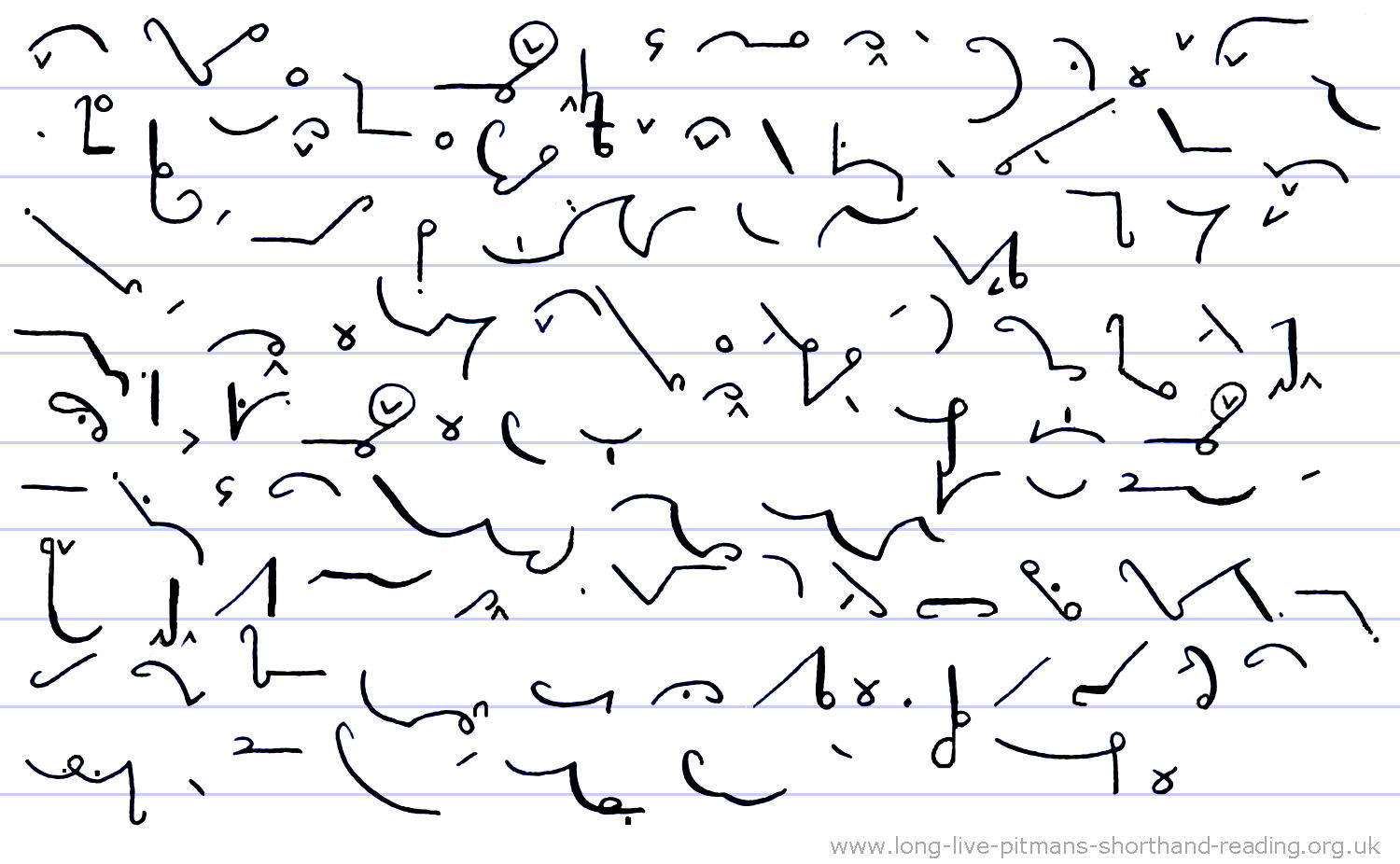
My preference is to take exercise outdoors with the maximum amount of
fresh air. I like to have a target destination in mind, as otherwise I
might be tempted to hurry back to my computer and carry on sitting
unhealthily for long periods, active only on the keyboard and mouse.
Fortunately my computer is upstairs and so frequent trips up and down
the stairs add to the daily exercise. However, no amount of incidental
home exercise can compare with the more beneficial movement involved in
walking and striding down the road, and going round a park or open green
space, preferably keeping away from the traffic fumes near the main
roads. The distances are greater and there is more incentive to walk
further and investigate everything of interest.
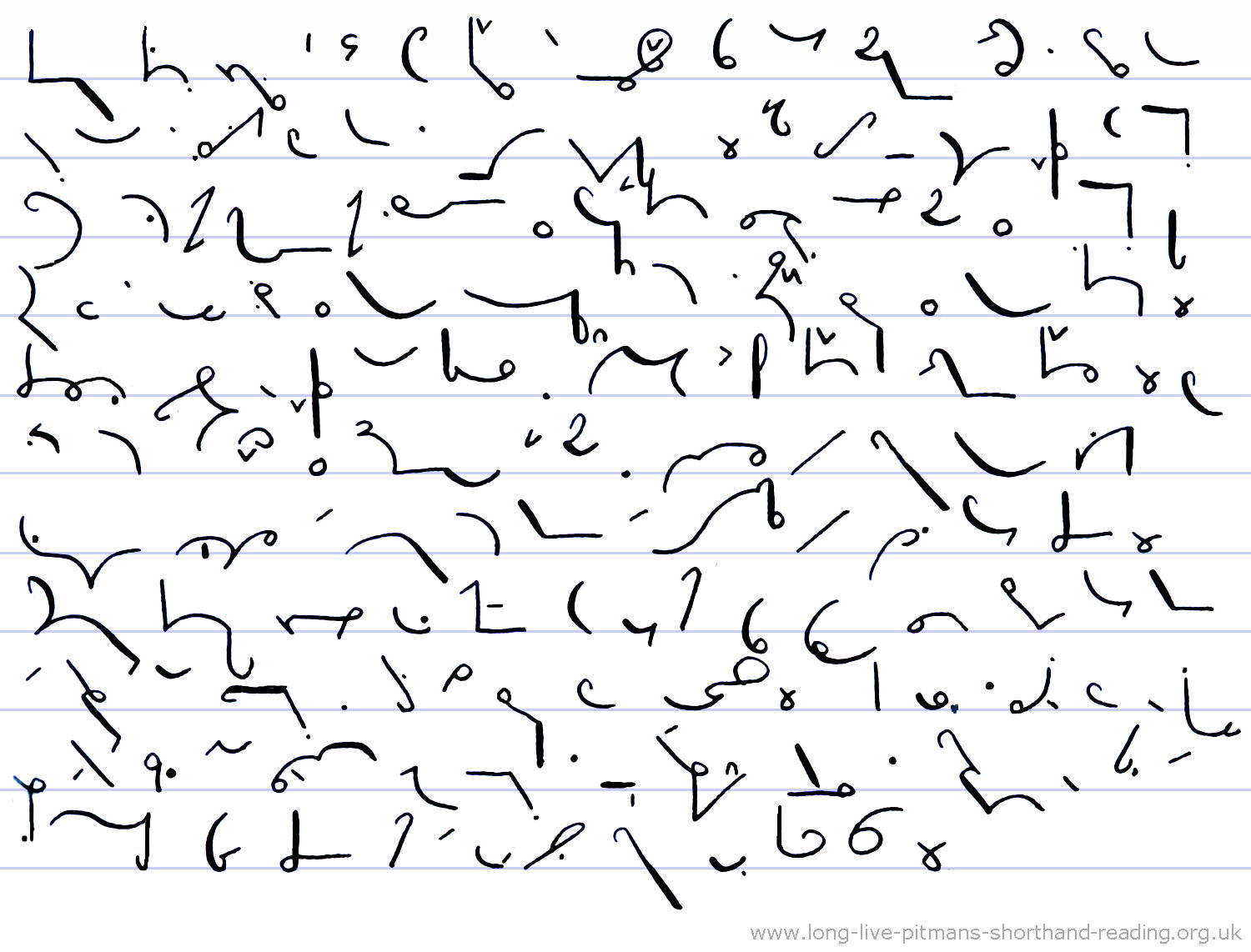
It can be tempting to press on with the other types of exercises, those
in the shorthand book, and there is a place for putting in a concerted
effort for a goodly period of time. On the other hand*,
one could easily decide that getting fresh air/drink/snack is overdue
simply because the shorthand is getting difficult, especially when a new
concept is being introduced, or a higher speed is being attempted. It
seems to me* useful
to decide in advance the length of the study time and break times.
However hard your mind is working on the shorthand, the limbs are
probably being held fairly motionless and maybe your back and shoulders
are leaning over the desk, there may be the temptation to cross the feet
and tuck them under the chair, thus losing some support for the back,
and possibly the hand gripping the pen as the speed effort increases. It
needs a conscious effort to continue to sit up straight and not slump,
and if keeping a good posture becomes a problem to achieve and maintain,
then the desk, chair and footrest probably need attention as well.
* Omission
phrase "on the oth(er h)and"
* Omission phrase "It seems (to) me" Essential to insert the vowel in
"me" as this is very similar to the phrase "it seems important"
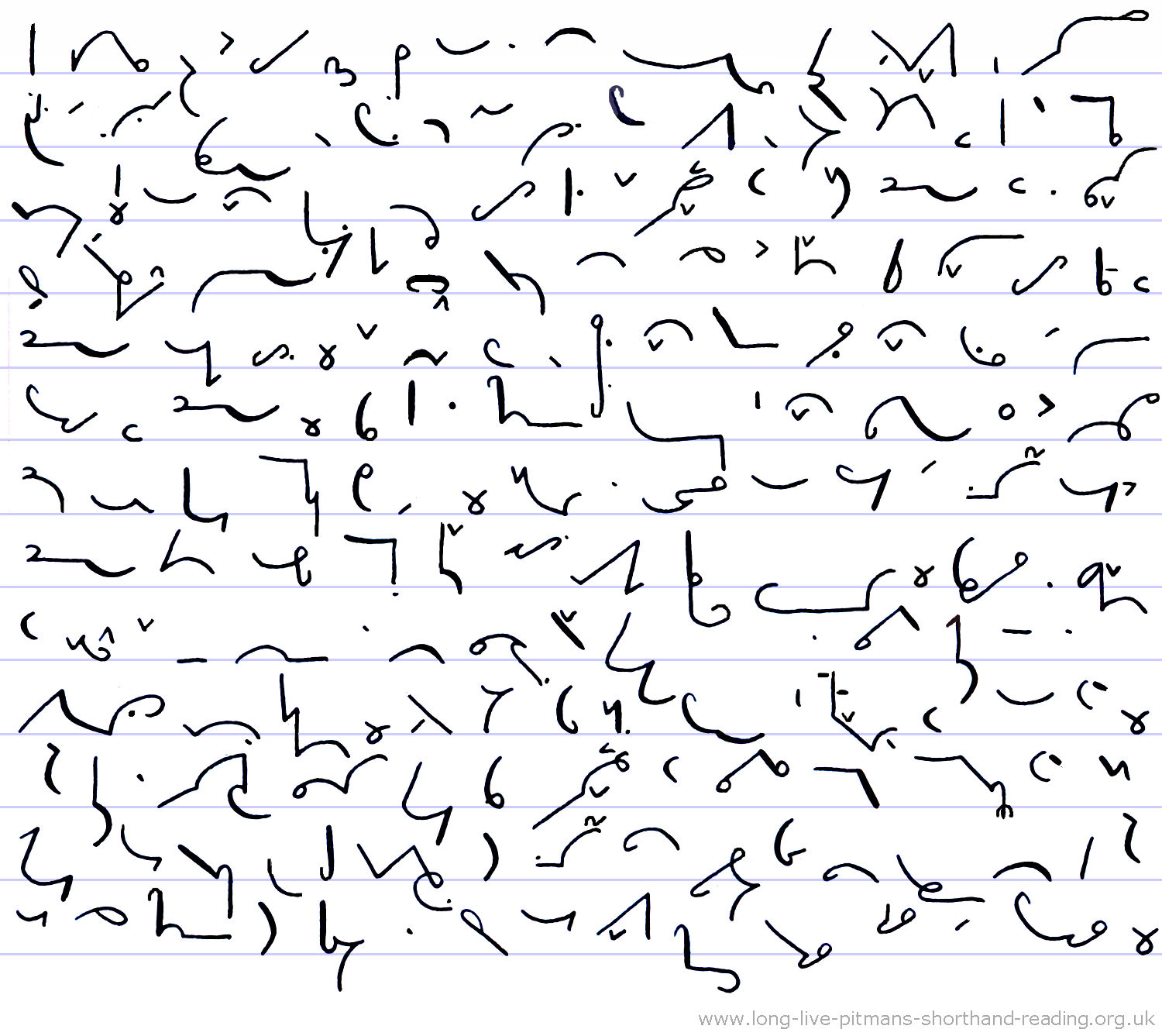
It helps to think of the way you would sit in an important interview,
which would be upright but relaxed, attentive and alert, listening to
every word, and not leaning over ready to fall asleep when it all gets
too much! In my teenage years, one day I realised that I was walking
with a slightly stooped posture, looking at the ground before me most of
the time, just like one does when walking into the wind. I made the
effort to straighten* my
back, raise my face and look forward when walking. This had a dramatic
effect on my wellbeing, as all the muscles were now doing the activity
as they should. I felt an increase in energy and actually enjoyed
walking much more* instead
of getting tired and wanting to reach the destination quickly. This was
the first time that I found I could* make an improvement simply by
changing a habit* and it was quite a revelation to me at the time. Up
until then I did everything on autopilot without any thought. Although
it was a relatively small change, this realisation, that habits* can be
captured, thought about and changed for the better, if done
purposefully, was actually more useful than the mere physical
improvement, which, although not the most dramatic, was definitely a
step in the right direction: upwards, onwards and forwards. (1236 words)
* "straighten"
Note that the past tense "straightened" is disjoined, as the two T
strokes are different lengths
* Omission phrase "much m(ore)"
* "I could" Not
phrased, so that it is not misread as "I can"
* "habit" "hobby" Insert the first
vowel, as these are similar in outline and meaning
Top of page
Jupiter And Juno (14 July 2016)

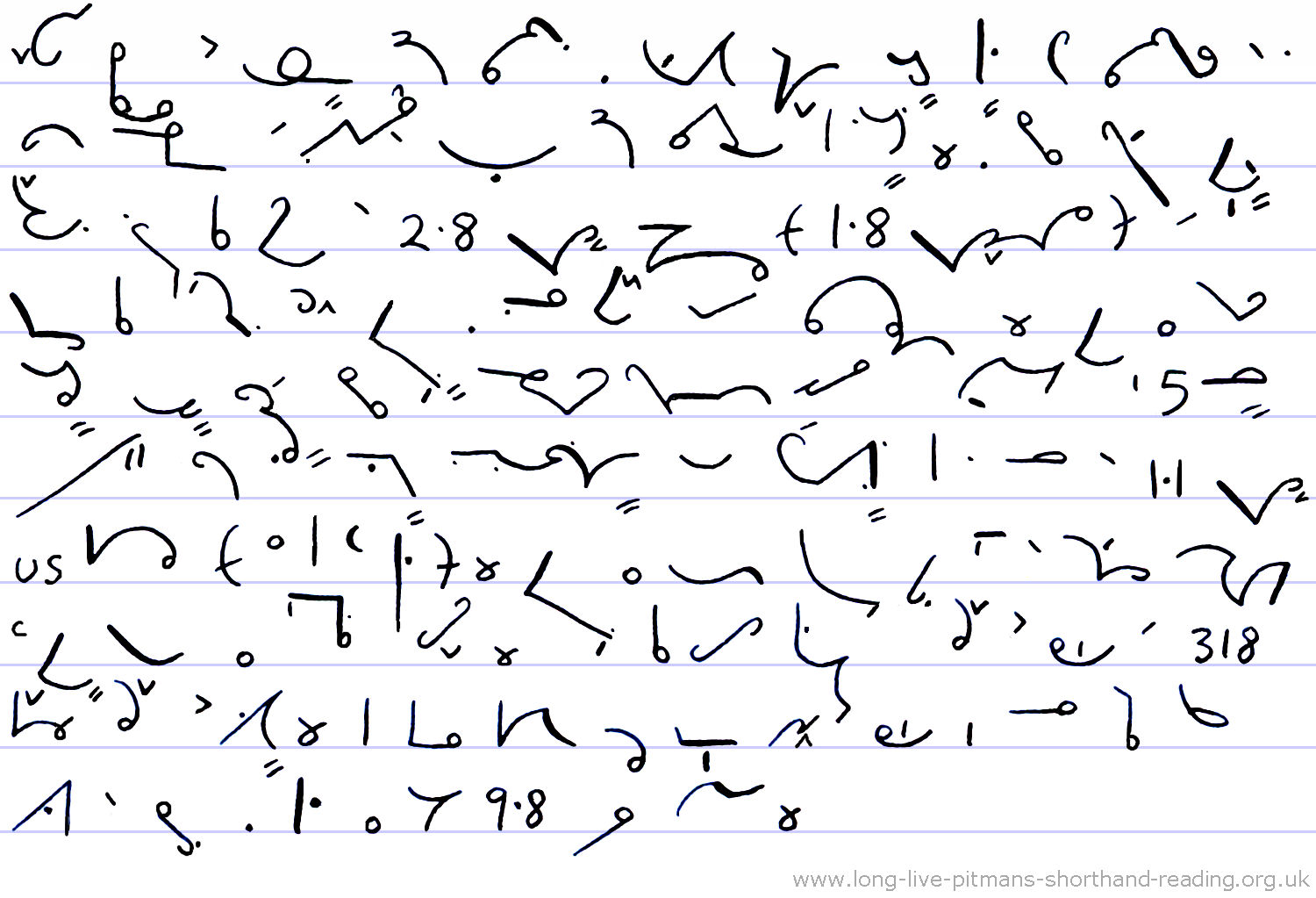
While the citizens of the United States of America* were
celebrating the Fourth of July, Independence* Day,
other celebrations of a more ecstatic and rapturous nature were
happening at NASA*.
The space probe Juno finally completed its journey of 2.8 billion
kilometres (1.8 billion miles) and began its orbit around Jupiter, the
gas giant of our solar system. Juno is part of NASA’s New Frontiers
space exploration programme and was launched on 5 August 2011* from
Cape Canaveral in Florida at a cost of 1.1 billion US dollars* (as
at that date). Jupiter is named after the chief god of Roman mythology,
with Juno being his goddess wife. It is one tenth* the size of the sun
and 318 times the size of the Earth. It takes 12 years to go round the
sun but because of its fast rate of* spin,
the day is only 9.8 hours long.
* Omission
phrase "United States of America"
* "Independence" A well-known phrase, therefore safeto use the
contraction, but could be written in full if felt necessary, to
distinguish it from "independent"
* "NASA" An acronym, i.e. initial letters pronounced as a word,
therefore use an outline for the spoken sound
* "dollars" You can intersect stroke Ds for "dollars" where convenient
but not possible here
* "tenth"
"eighteenth" Vowels essential, similarly ten/eighteen, eight/eighty
* "rate of" Not using the F Hook for "of", because it might be misread
as "rotation" which also makes sense in this context
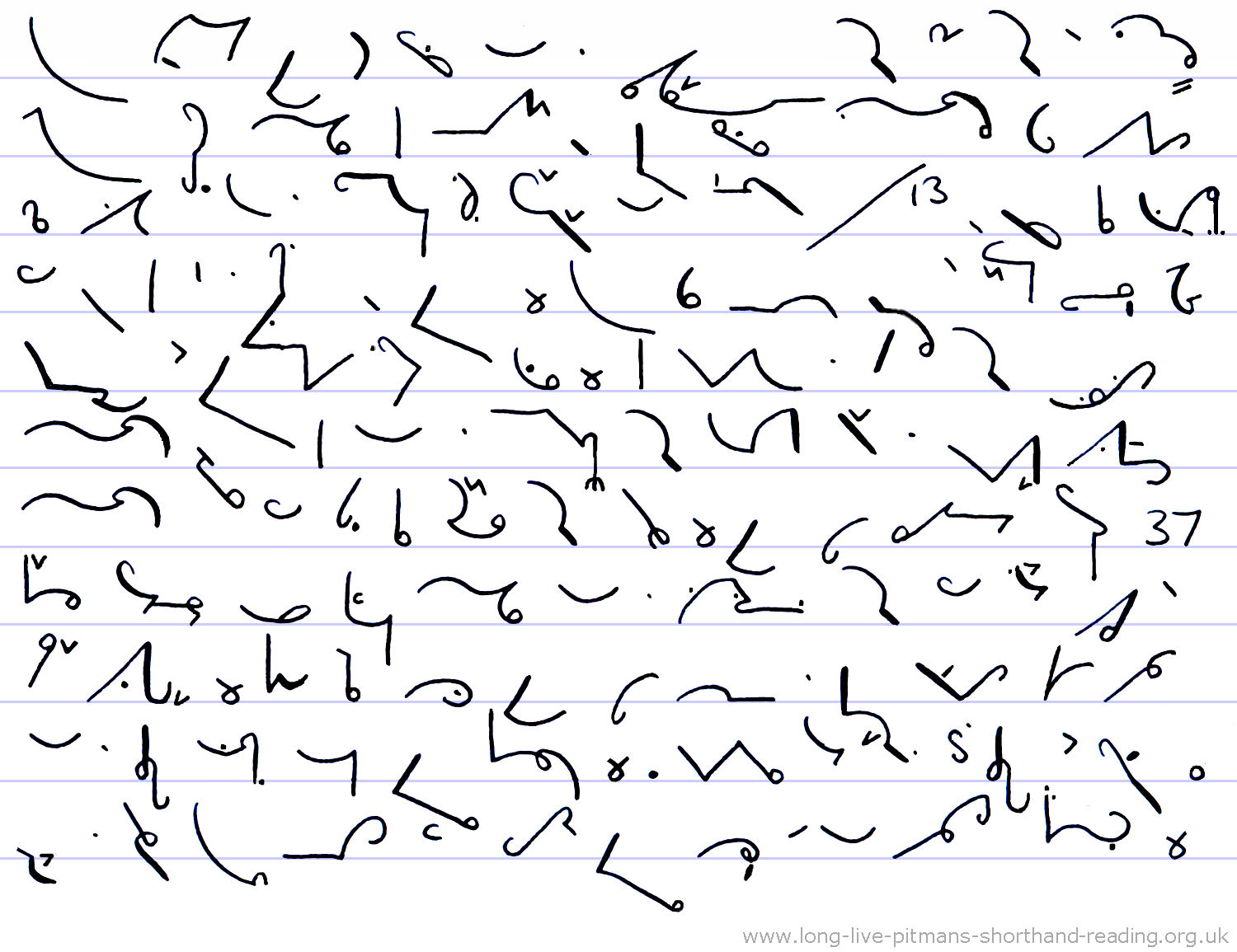
After launch Juno was placed in a heliocentric* orbit
beyond the orbit of Mars and after 13* months
it carried out* two
deep space manoeuvres, then returned towards Earth for a gravity assist
flyby in October 2013* to
boost its velocity, in order to* put
it on a trajectory to Jupiter. After this came two years of quiet cruise
and then the beginning of the Jupiter approach phase. It performed a
large orbit insertion manoeuvre to place it in a capture orbit, followed
by a period reduction manoeuvre in order to* achieve its science orbit
position. Juno will circle the planet 37 times over the course of the
next 20 months, in an elliptical orbit in order to* avoid
the regions of high radiation. At the end of its mission, Juno will make
a deorbit burn which will result in a destructive entry into Jupiter’s
atmosphere. The purpose for the planned destruction of the probe is to
avoid* a
possible future collision with one of Jupiter’s moons and any resultant
contamination.
*
"heliocentric" The outline needs a downward L, therefore it cannot have
a Tick Hay
* "thirteen" Ensure the hook is clear, so it is not misread as "thirty"
* "carried
out" Halving for the T of "out"
* "2013" Long slash for current century, arbitrary sign with no phonetic
value
* Omission phrase "in ord(er to)"
* "avoid" Insert the diphthong, as it is similar to "evade" in outline
and meaning
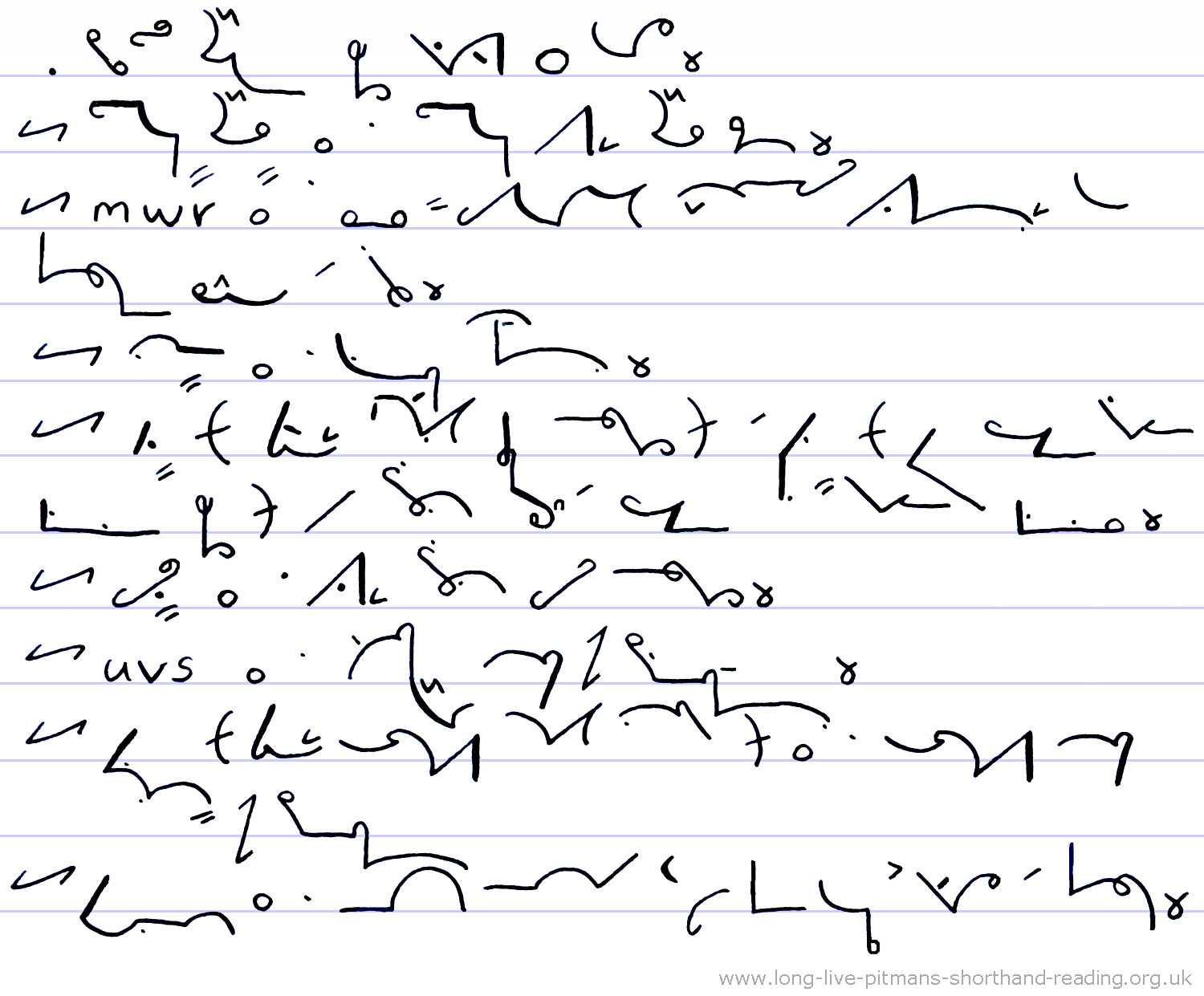
The spacecraft’s scientific instrument payload is as follows:
-
Gravity Science
is a gravity radio science system
-
MWR* is
a six-wavelength microwave radiometer for atmospheric sounding and
composition
-
MAG is a vector
magnetometer
-
JADE (Jovian
Auroral Distributions Experiment) and JEDI (Jupiter Energetic
Particle Detector Instrument) are plasma and energetic particle
detectors
-
Waves is a radio
plasma wave experiment
-
UVS* is
an ultraviolet imager/spectrometer
-
JIRAM (Jovian
Infrared Auroral Mapper) is an infrared imager/spectrometer
-
JunoCam is a
colour camera that will take photos of the poles and atmosphere
* "MWR" "UVS"
These are initialisms, therefore use lower case longhand letters, the
others are acronyms, i.e. they can be pronounced as words, like NASA in para
1
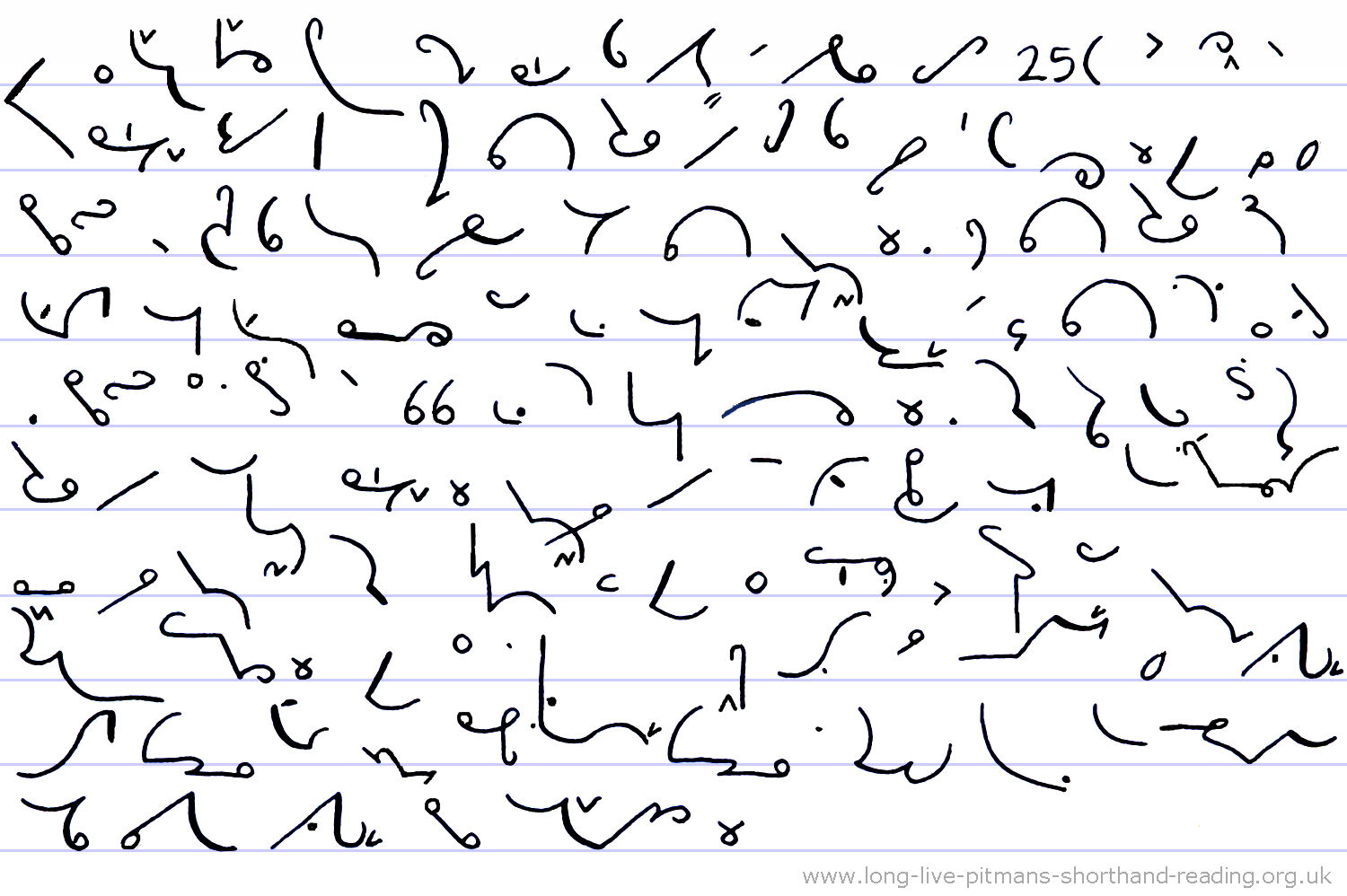
Jupiter is five times further from the sun than Earth and receives one
twenty-fifth of the amount of sunlight that we do, therefore the solar
panels are larger than those used on other missions. Juno is the first
spacecraft to travel this far using only solar power. The three solar
panels were folded into four segments in order to* fit into the launch
vehicle, and when the solar array is open* the
spacecraft has a span of 66 feet or 20 metres. The orbit paths have been
planned so that the panels are in continuous sunlight. Power
requirements are quite low, as it is only* needed for approximately 6
hours per orbit, at the time when Juno is closest to the planet, in
order to* power
the scientific equipment. Juno has a titanium* outer
shell and is carrying the first radiation shielded electronics vault, to
protect the sensitive electronics, an essential feature for exploring in
this heavy radiation space environment.
* Omission
phrase "in ord(er to)"
* "open"
Ensure the P is clearly full length, as "opened" would also make sense
* "as it is only" On its own, "only" is written with full N and L
strokes
* "titanium" Can also be pronounced "tye-"
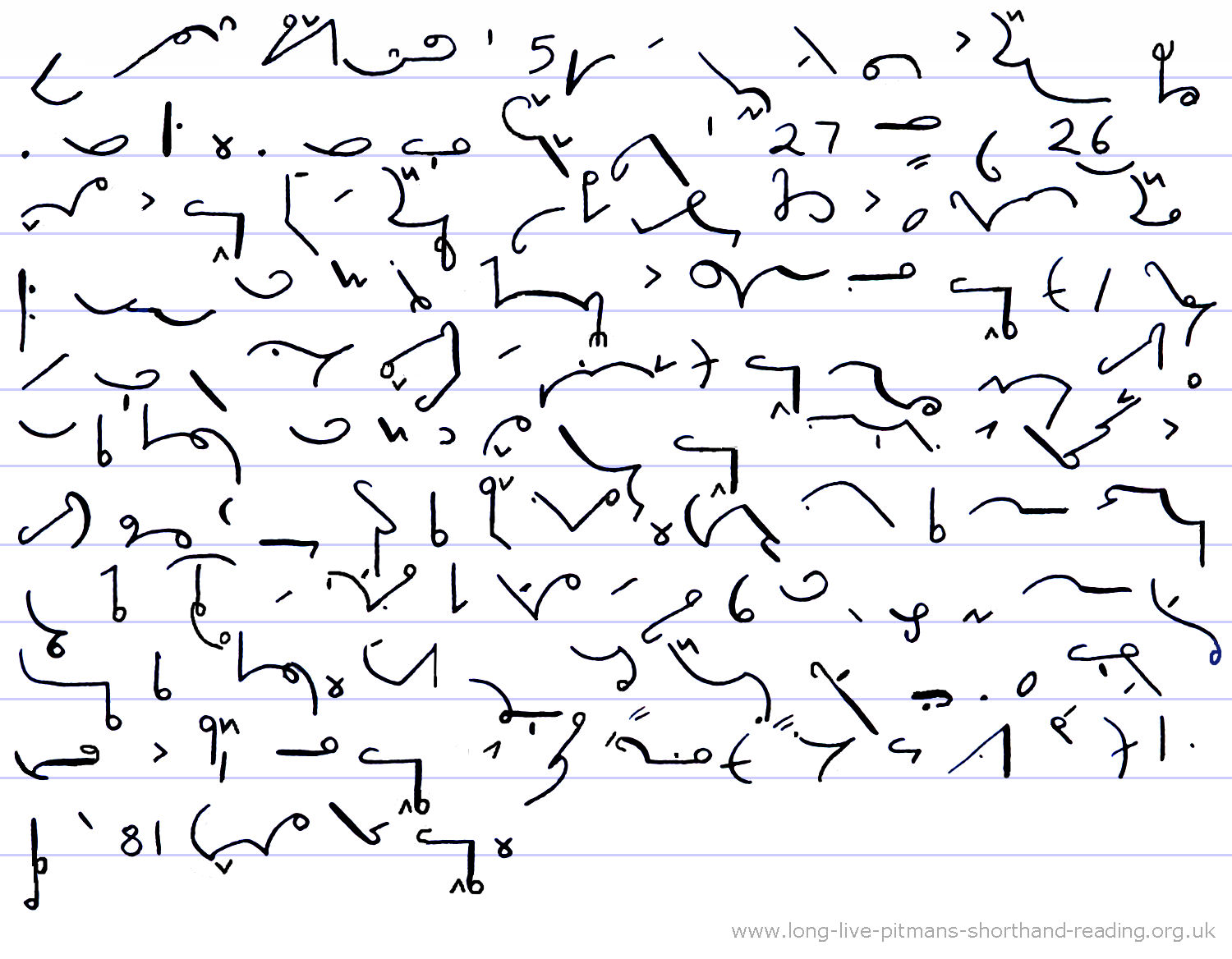
Juno resumed high-rate communications on 5 July and powered up some of
the scientific instruments the next day. The next close flyby will be on
27 August, within 2,600 miles of the cloud top, and scientists will
start to receive the transmission of the first preliminary science data
including information about the composition and temperature of the
swirling gas clouds (which presently are known to be mainly hydrogen and
helium), cloud movements, how much water is in its atmosphere,
information about what lies beneath the cloud canopy and the behaviour
of the weather systems that give the planet its striped appearance. They
will be able to map its magnetic and gravity fields, and its
magnetosphere and auroras at the poles and use this information to
understand how the magnetic force affects its atmosphere. Forty years
ago NASA's Pioneer probe gained the first close-up photographs of the
striated gas clouds and the high pressure* vortex
(commonly called the red spot), at a distance of 81,000 miles above the
clouds.
* Omission
phrase "high (pre)ssure"
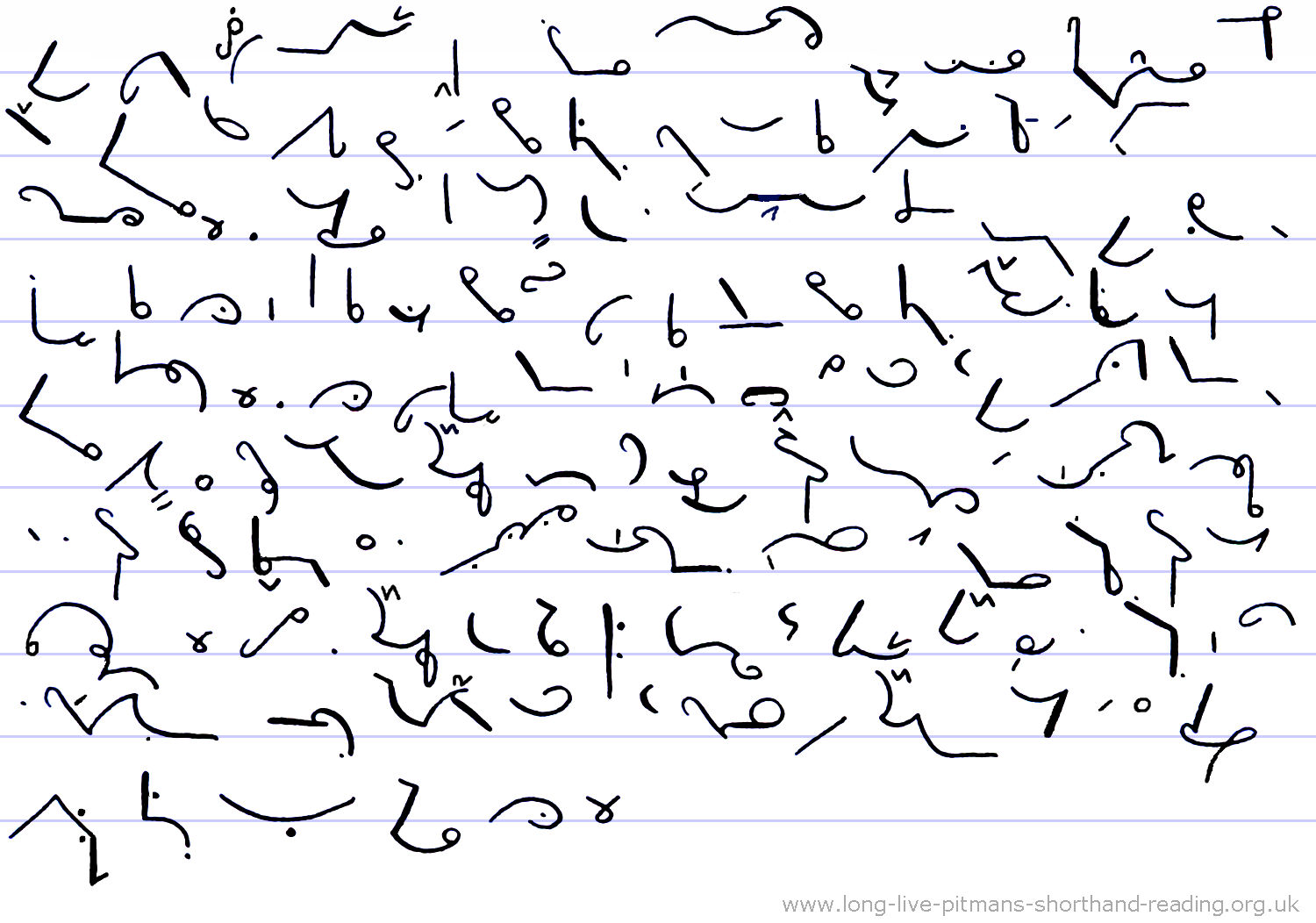
Juno will be constantly carrying out complex manoeuvres to avoid the
intense turbulence caused* by
Jupiter's fast rate of spin and space debris, principally in its ring of
dust and rock fragments. The engineers at NASA have an ongoing task to
keep Juno safe to continue its mission, but at its end the spacecraft
will itself become space debris and finally descend into Jupiter’s
atmosphere. The mission will continue back on home ground, as the
information that Juno relayed back to Earth is processed, enabling
scientists to improve their understanding of planet formation and
unravel the mysteries of a planet that has been described as a
relentless unforgiving monster and the biggest baddest planet in the
solar system. Once the scientists have all this data, they may find that
the Jovian giant is not a baddie but more a prolific giver of valuable
information that progresses our scientific knowledge and has generously
repaid the daring nature of Juno's mission. (894 words)
* "caused"
Special outline, to differentiate from "cost"
Top of page
RAF Museum (28 July 2016)
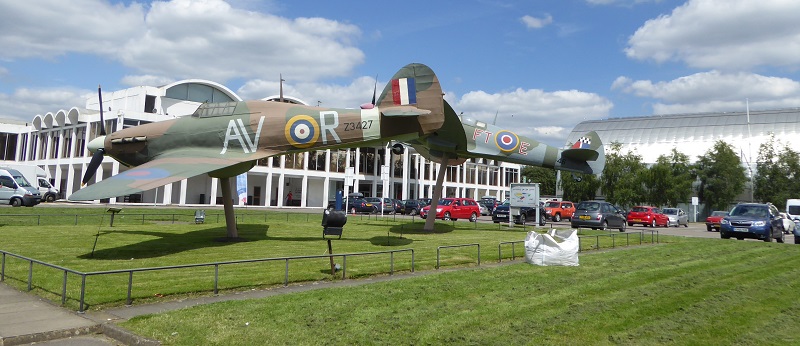
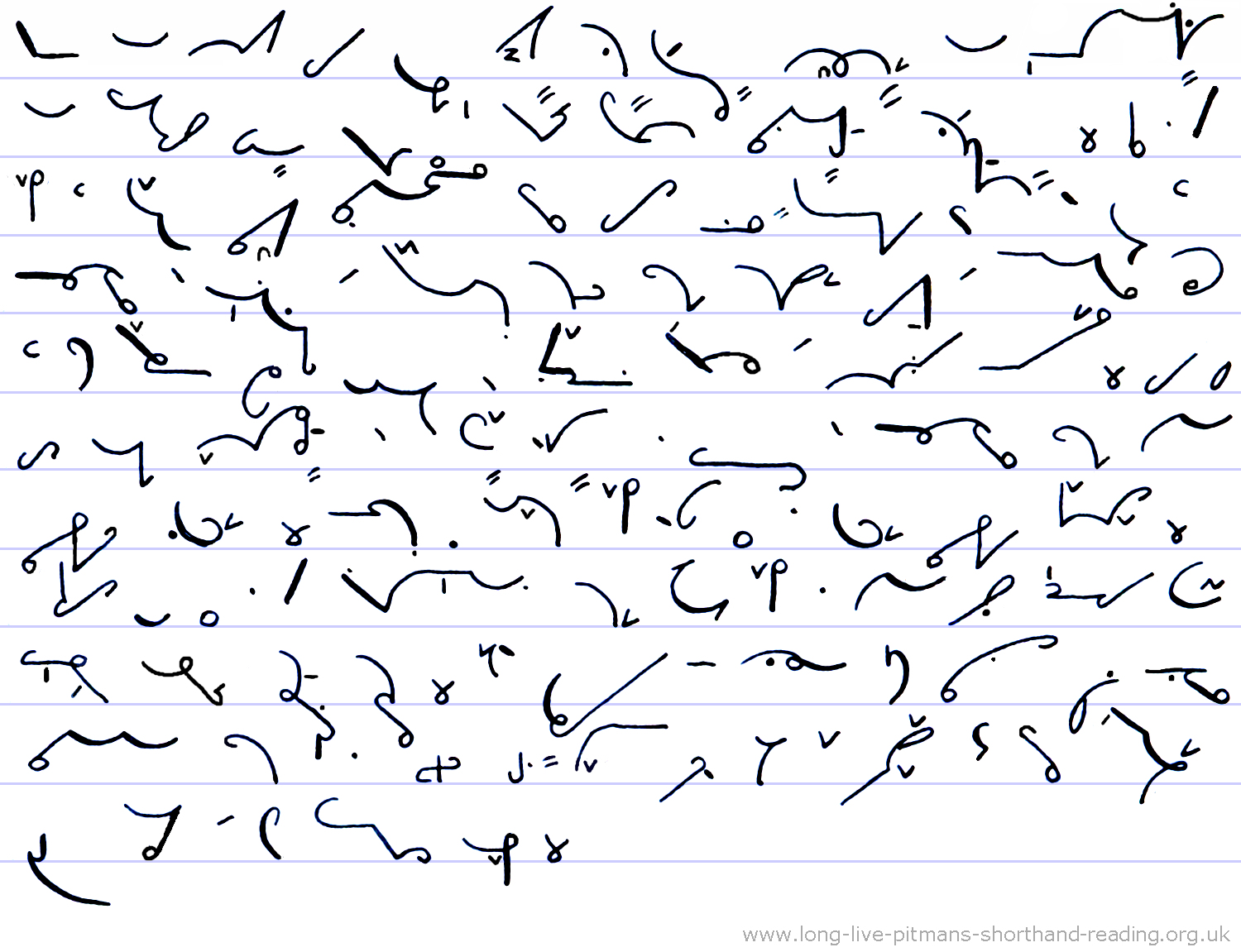
Back in March we visited the Royal Air Force Museum in Colindale,
in North West London, built on part of the former Hendon Aerodrome. It
is a large site with five huge hangars* plus
one ex-factory building, all filled with examples of innovative and
pioneering aircraft, from the earliest wood and canvas machines with
their bicycle wheels underneath, to gigantic bombers and military
carriers. We first went into the Milestones of Flight Hall, a collection
of examples from the long history of aviation. Covering the entire side
wall is an Aviation History Timeline. At one end is a large balcony area
and along the side a long raised walkway, allowing close-up inspection
of the suspended airplanes. I thought these were quite amazing* on
their slender* steel
cables, hanging from a curved tent-like roof, until I realised that the
planes obviously did not have their* engines
and other equipment inside.
* "hangars" Dictionary outline, for the pronunciation "hang-gars".
Alternatively use the outline for "hanger" shown in para 8
* "amazing" and "amusing" Always insert the vowel
* "slender" Helpful to insert the vowel, as "cylinder" could possibly
make sense as well
* "have their" Doubling for "their"
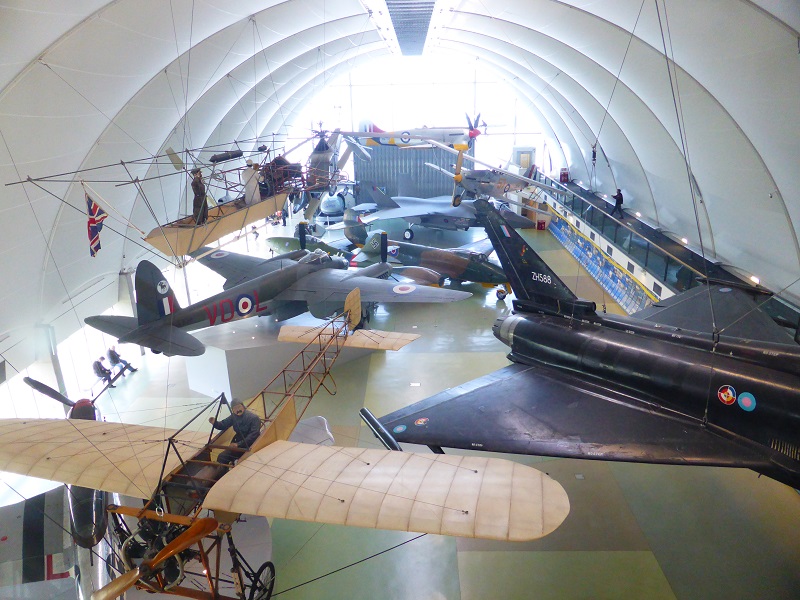
Milestones of Flight Hall
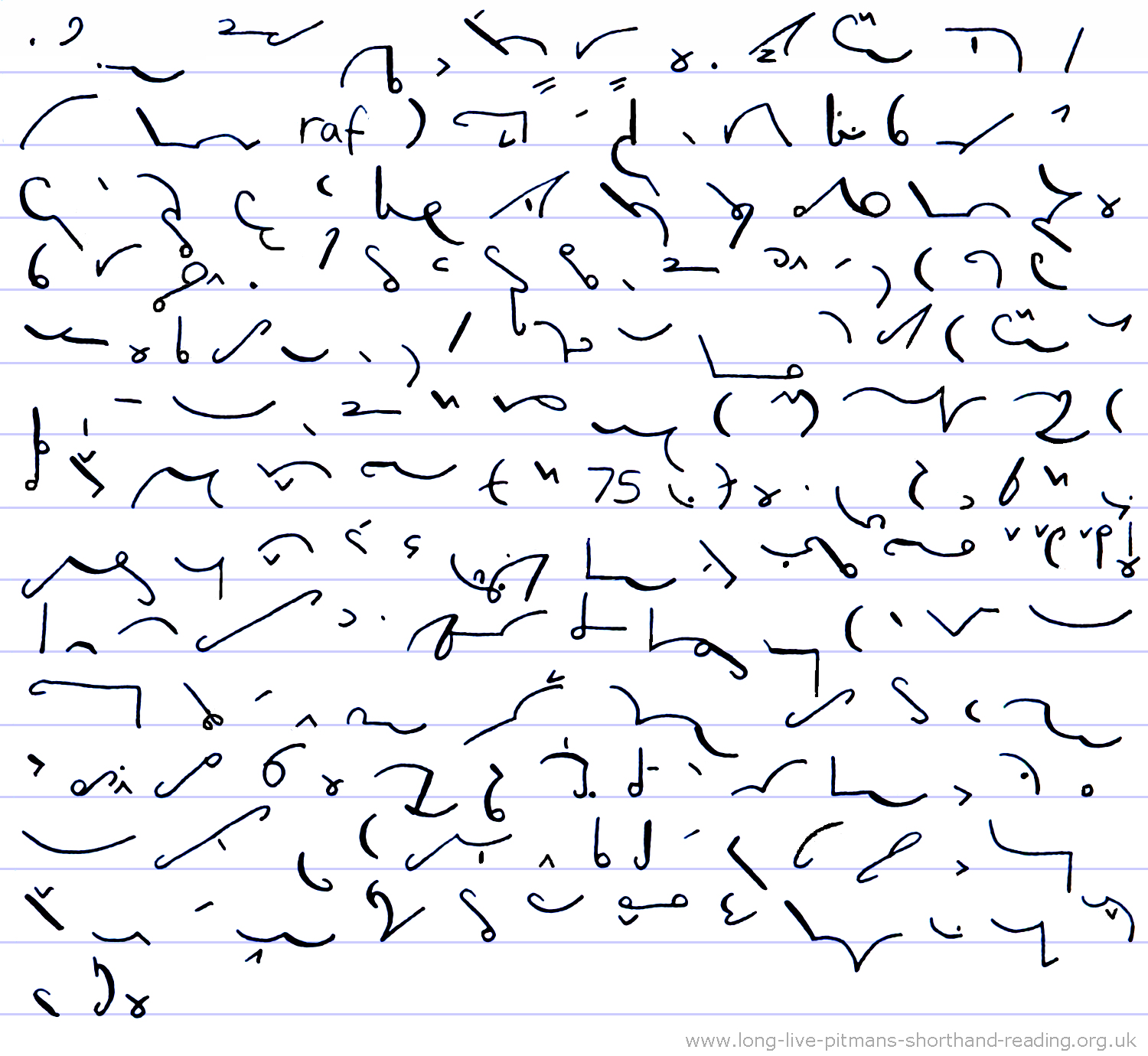
A short connecting
walkway leads to the Bomber Hall. The Royal Flying Corps, which later
became the RAF, was created and developed to
help defend this country and the developmen*t of airplanes fulfilled that
defensive role before passenger services became available. This hall
houses the larger planes, with plenty of space to walk around and see
them from every angle. It is one thing to see large aircraft in pictures
or watch them flying in the distance, but quite another to walk about
almost underneath them, and I was mentally measuring them by the length
of my garden (about 75 feet*).
A few of them would just about fit the wingspan into my plot, with the
fuselage taking up the neighbours’ gardens on either side! It made me
wonder what a logistical task it must have been* to
get them all parked in their correct positions, and how you could not
really remove one plane without moving all the surrounding ones as well.
Imagining all these umpteen tons of metal taking to the air is another
wonder, even though we know how it is done and ought to be well used to
the fact by now, and knowing that there are planes in our skies that
would barely fit into the entire building on their own.
* "development"
Optional Contraction. This is safe to use for the verb as well, but the
official outline for "developed" is given here.
* "75 feet"
and "foot" Always insert the vowel in these, as either can be used in
measurements. "Foot" is used when the measurement is used as an
adjective e.g. "A 75-foot boat"
* Omission phrase "it must (have) been"
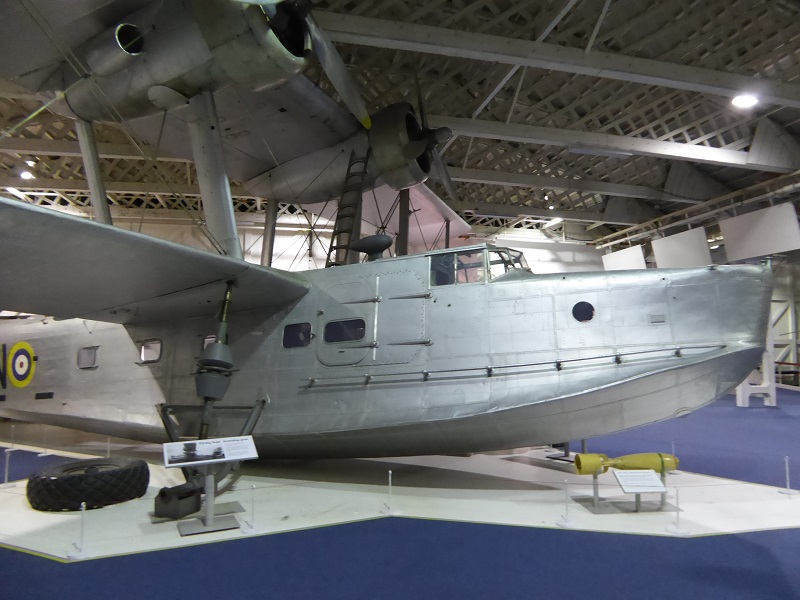
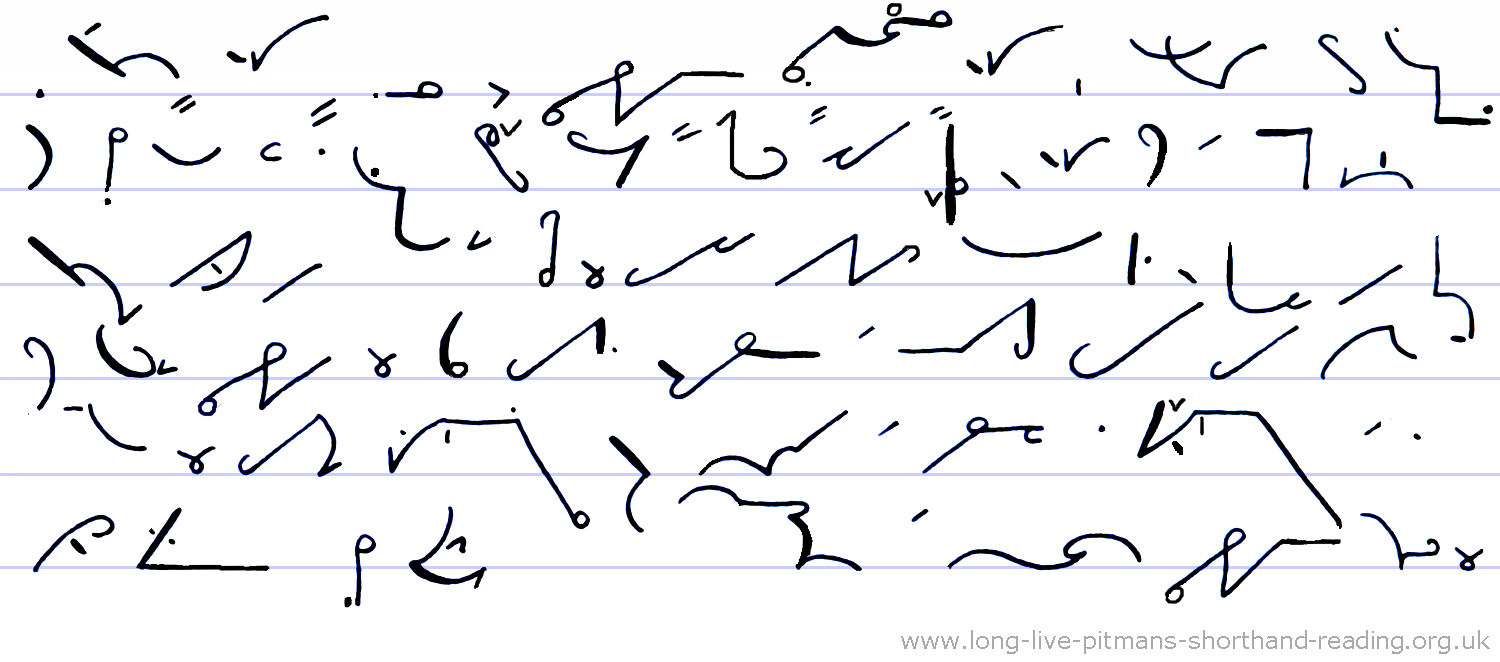
The Bomber Hall
connects to the Historic Hangars Hall but unfortunately* plane fatigue
was setting in, with a fading supply of energy and attention, and we
decided to halt there and get home before the rush hour on the trains.
We would return another day to continue our tour through aviation
history. This we did two weeks ago*,
and carried on where we left off. We saw the helicopters, both military
and rescue, a gyrocopter and a lone ejector seat showing the mechanism,
and many more historic aircraft.
*
"unfortunately" Optional contraction
* Omission
phrase "two wee(k)s ago"
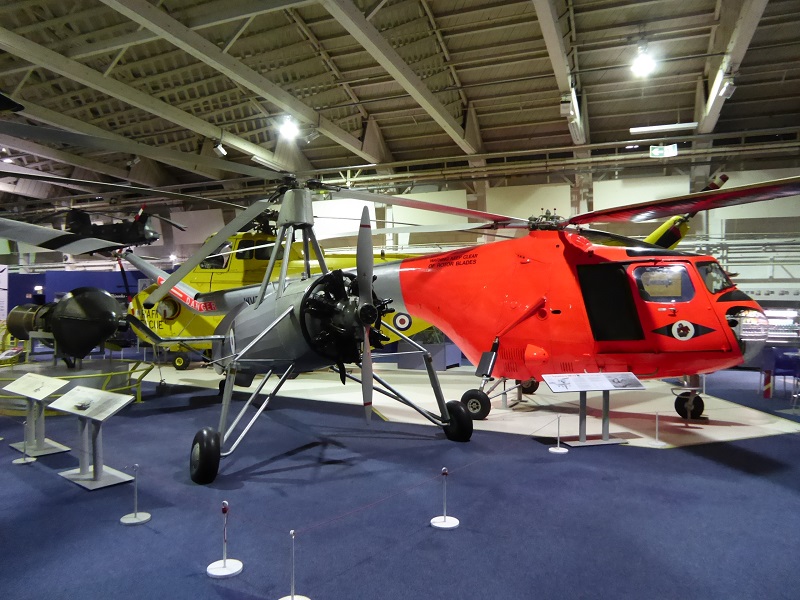
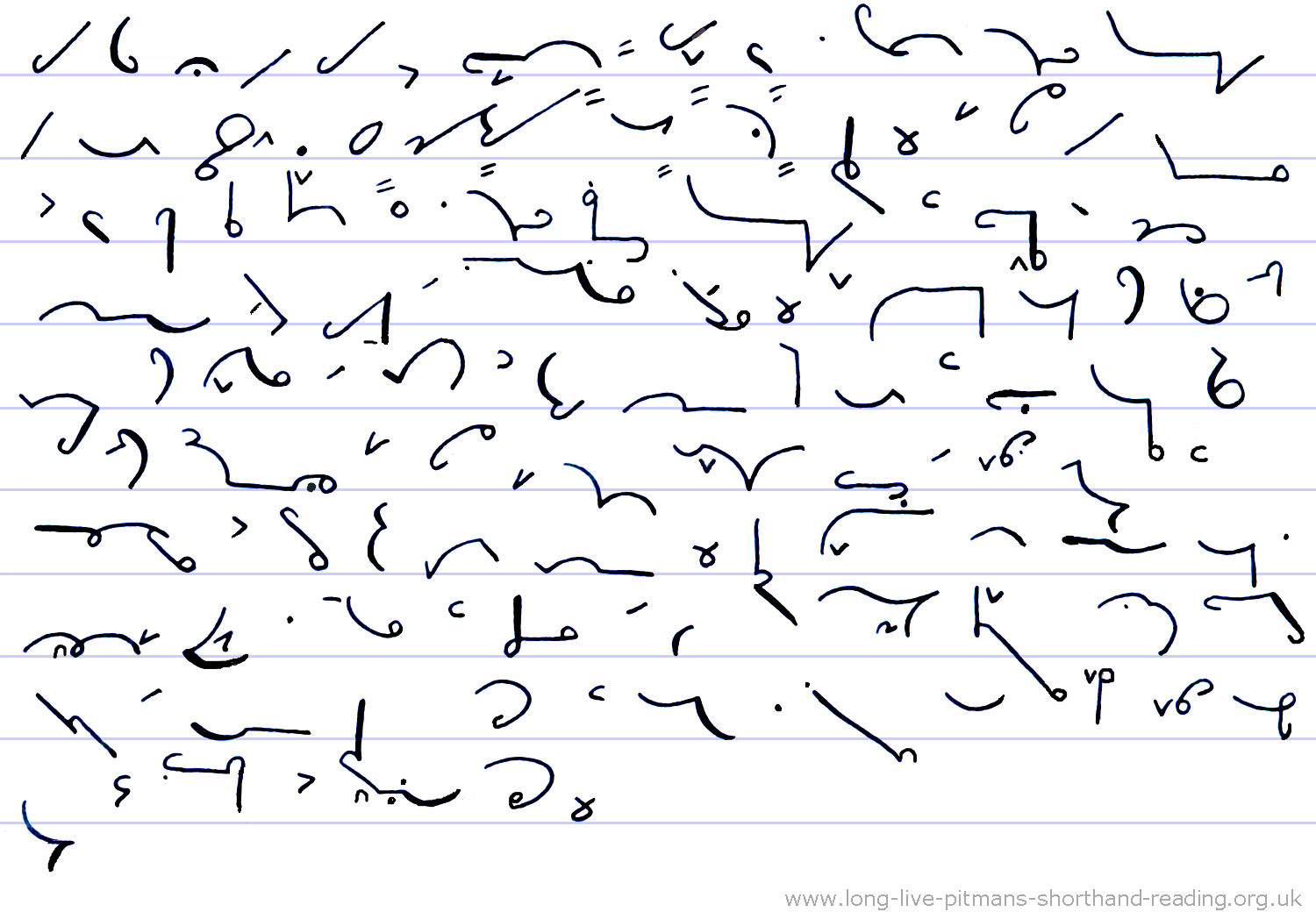
We then made our way to the Grahame-White Building, a former aircraft
factory, which now houses the First World War In The Air display. On the
walls are pictures of the building during its time as an aircraft
construction factory, with crowds of women making up the wood and canvas
components. I looked into their faces and tried to imagine their lives,
and also what they would make of it now, with grey photos of themselves
and their workmates on the walls, but the room entirely clean and
silent, and filled with examples of the planes that they helped to make.
It would be like me going into a museum showing an office, with desks
and old manual typewriters, messy carbon paper and ink duplicating
machine, with never a computer in sight, silent instead of filled with
the clatter of the machines.
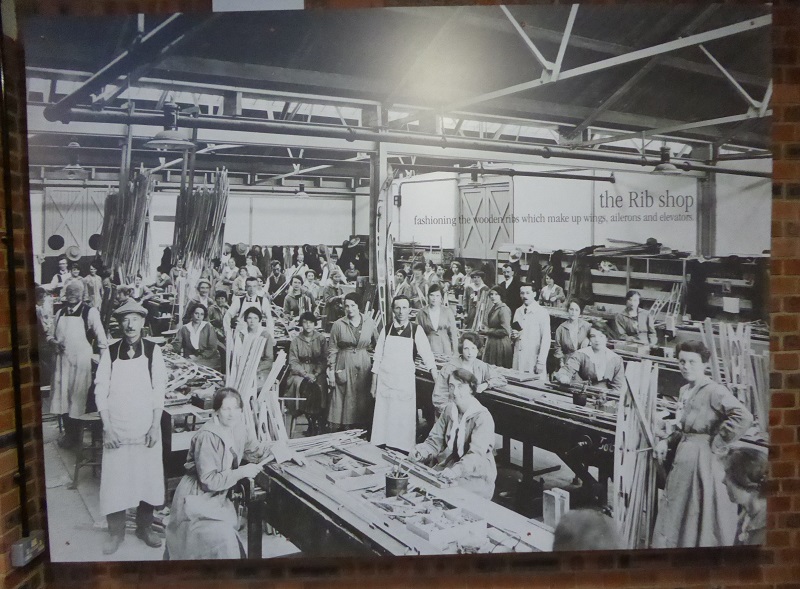
Grahame-White factory
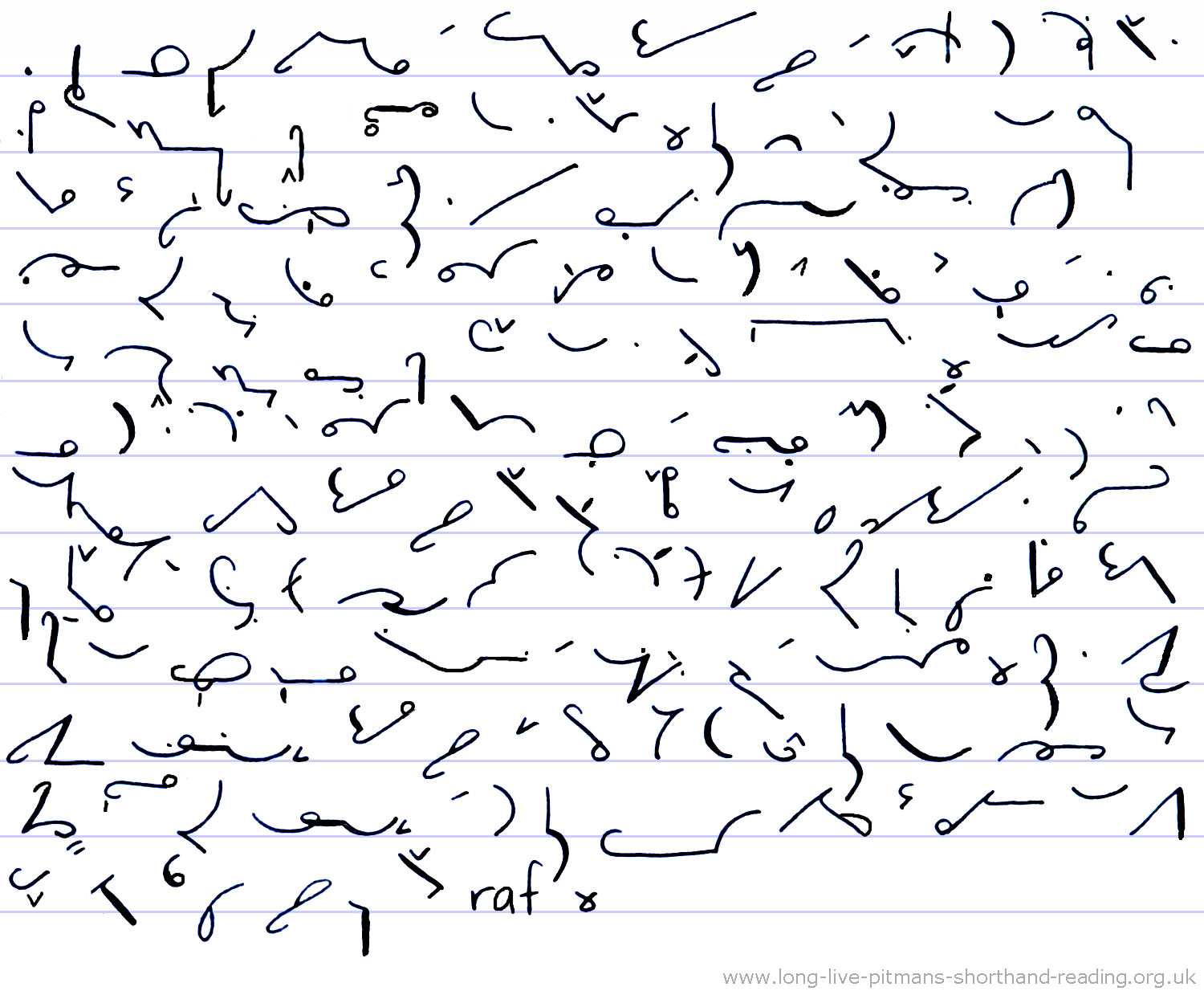
The display cases showed the uniforms and equipment that were used, and
my attention was arrested by a set of protective outer garments for a
pilot. It was made of sheepskin, in separate parts, with the wool
innermost, and there was a rather* scary
looking leather mask shaped to fit the face, with small holes for eyes
and the base of the nose, and a slit for the mouth, to protect the skin
during flight in an open cockpit. In one glass case was an array of
small bomb cases and grenades, and I was appalled* to see a particular
anti-personnel weapon that was used by both sides in the First World
War, a selection of different types of flechette (meaning little arrow)
which are sharp tipped steel darts that would be dropped in clusters, to
cause panic and injury to people and animals. There was an original
Union Jack* insignia
that was used on the planes, until they found it was being mistaken for
the German cross-shaped insignia and so it was quickly replaced with the
circle in red, white and blue that is still used today by the RAF.
* "rather" If
you felt this could be misread as "rare" it would be helpful to insert a
first place dot vowel, although it is not dictionary to do so
* "appalled" Always insert the vowel after the P stroke in "appall" and
"appeal" and their derivatives, although unlikely to be misread in this
particular context
* Contraction "U(nion) Jack"
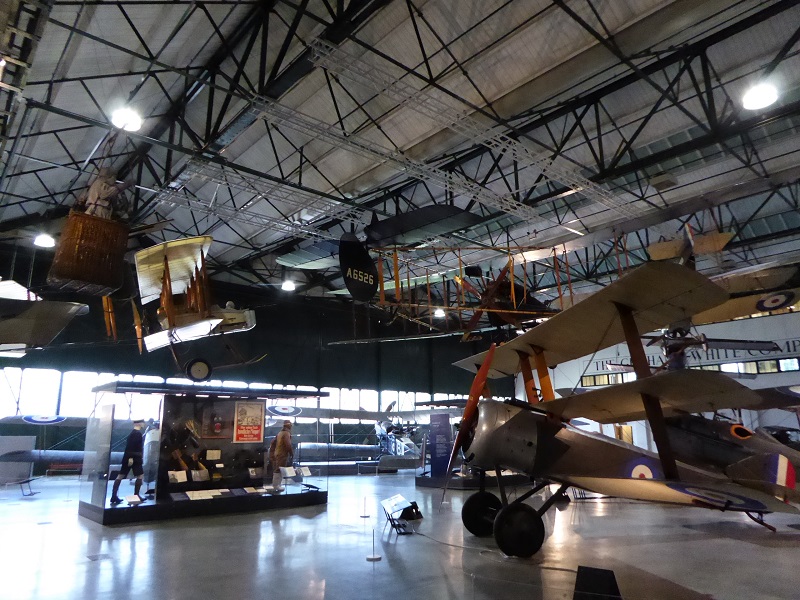
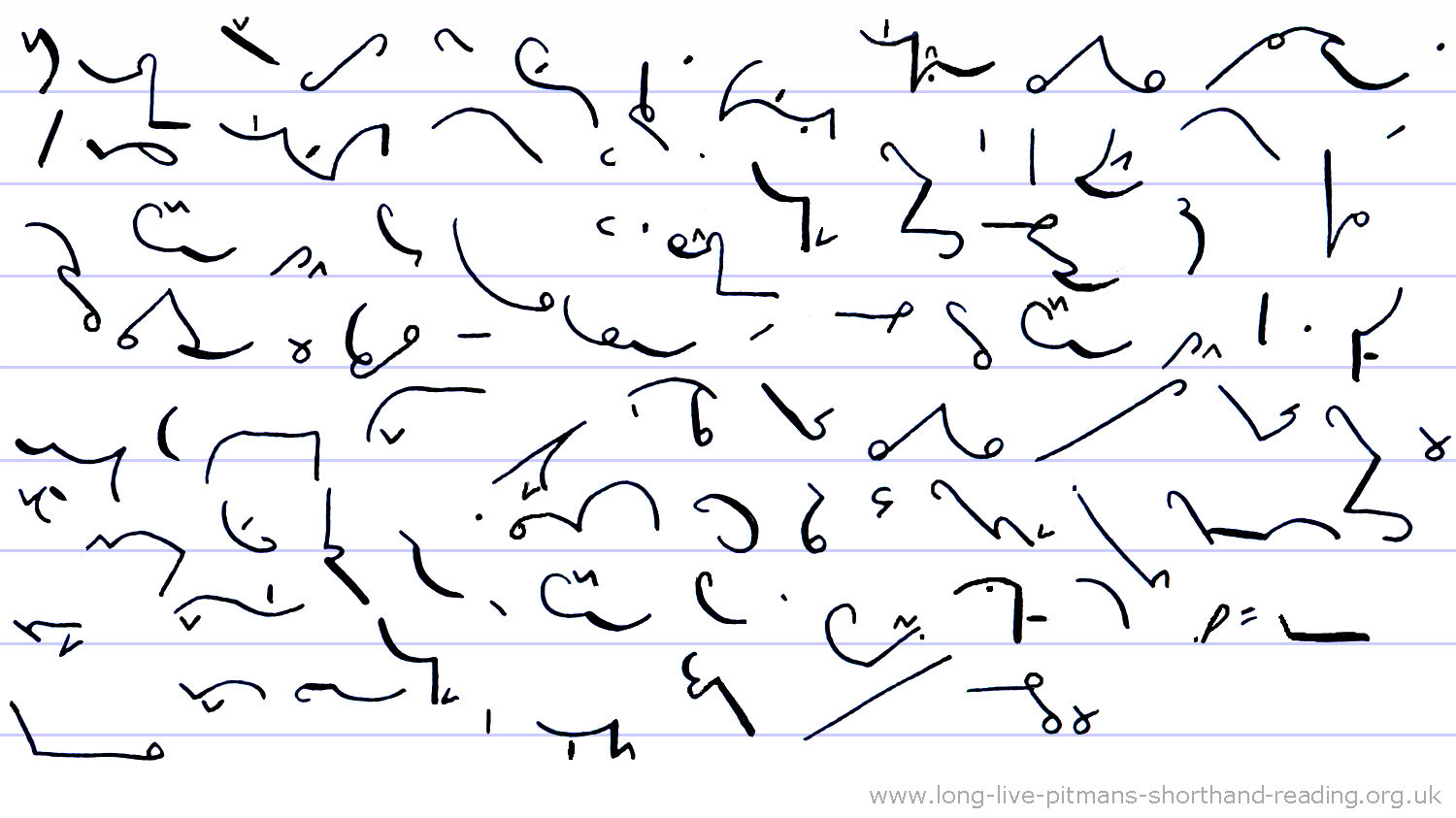
I was intrigued by one particular floor display, an illuminated
undulating surface resembling* a
large almost unfolded map, with a video projection on it showing map
details and airplanes flying round over the features with a soundtrack
explaining what was happening. This was quite fascinating, and because
the planes flying round had a shadow underneath, they looked like real
models above the surface, rather than part of the projection. I thought
how much fun it would be to have a smaller version of this, with the
appropriate* computer
programme to create my own video of flying over a flowery meadow or
stitched together pictures of my garden, but no doubt that would be
rather expensive.
* "resembling"
It is not necessary here to use the downward Ar before M, because the
circle provides the break between the two strokes
* "appropriate" Insert the diphone, and the first vowel in "proper", in
order to differentiate
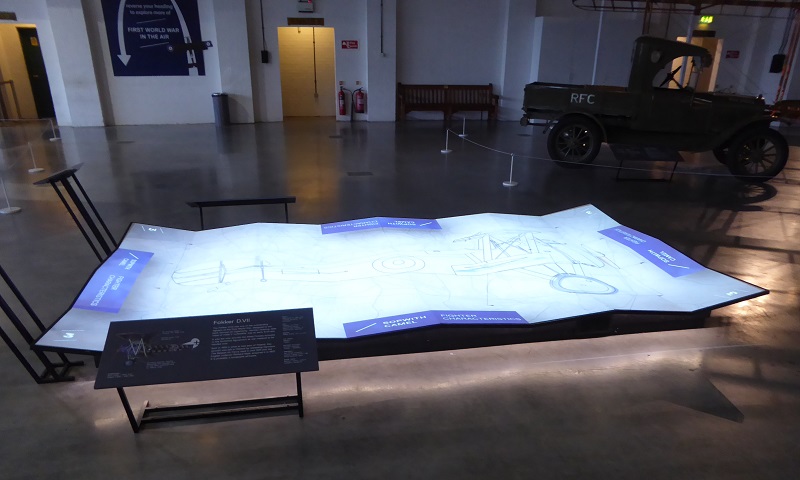
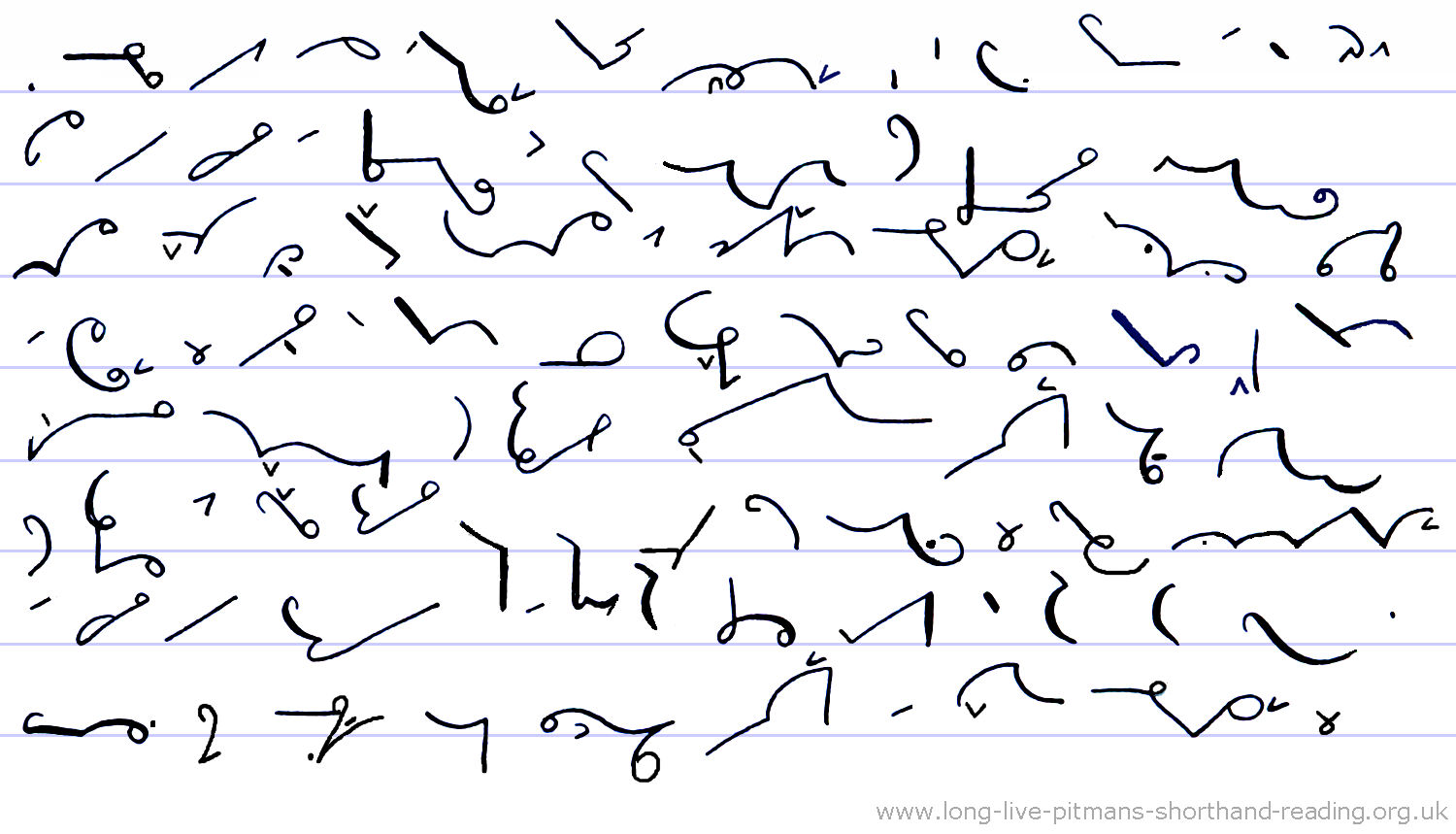
The exhibits are the
most obvious part of the museum but on every plaque and all around the
walls are stories and descriptions* of
the people involved, their discoveries and inventions, medals kindly
loaned* by
the families, and the wartime experiences of airmen, soldiers and
civilians. Rows of bomb cases alongside the aircraft, plus some burnt
out bomber hulks, reminded us that this was the horrific reality for
those living through those times and the price that was paid to defend
the country from invasion. Personal memorabilia and stories are
everywhere, and although it is impossible to read all of them, they
bring a glimpse through the keyhole into someone else’s* reality
and life experiences.
*
"descriptions" The plural does not use the contraction, as that would
look too much like "discourse" which has a similar meaning
* "loaned" and "lent" Insert the vowel to differentiate
* "keyhole" The
circle part of the Hay stroke is written clockwise as normal
* "someone else's" Helpful to insert the W-sign if you felt it might be
misread as "something else's", although in that case it would be quicker
not to phrase, in which case "someone" would just have the hook N
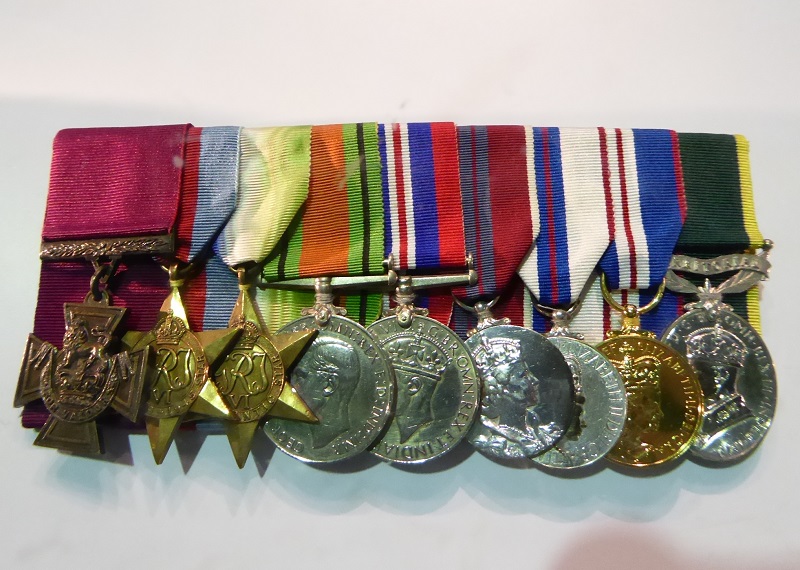
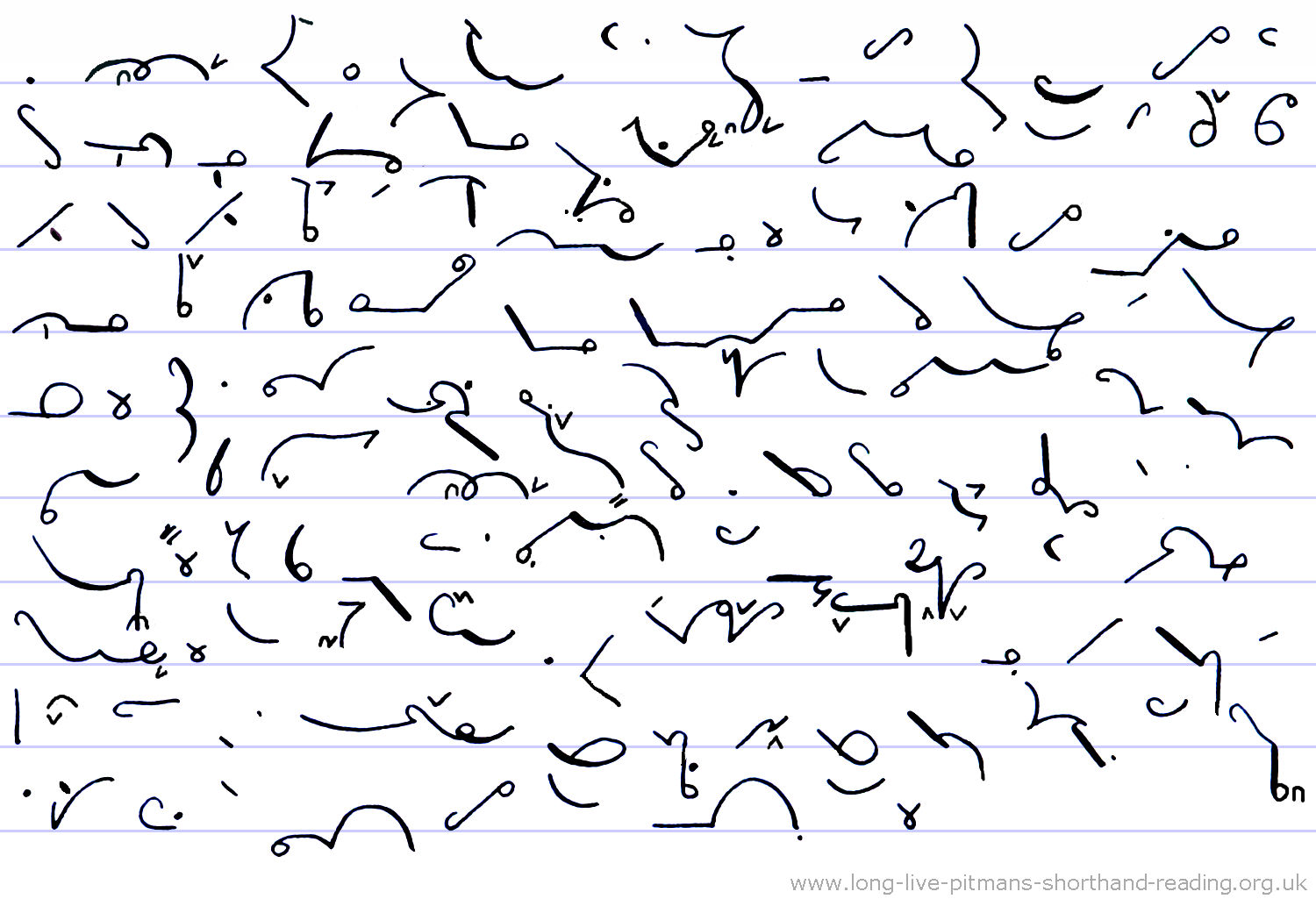
The museum shop is full of everything that an enthusiast could want,
especially the younger ones, with plane covered coats, jumpers, bags,
pyjamas and various uniforms in child sizes, as well as row upon row of
toys and model making kits. For the older ones keyrings, mugs, ties,
ladies’ scarves, books, bookmarks, pens, pencils and pencil cases. There
was a small inflatable* Spitfire
airplane, ideal for hanging from the bedroom ceiling, just like the
museum planes, the best place to avoid* the disappointment of a puncture.
I think this could be called a hanger*,
in order to* give
you the shorthand outline that reflects the pronunciation. For actual
flying, the cheap polystyrene glider kits are better, and it might occur
to an enterprising youngster to trace round the pieces before assembly,
in order to* produce a whole fleet of similar ones for colouring in.
* "plane covered coats" Just like normal listening, you would have to
decide from context whether this was "plane" or "plain" as both make
sense, as they are identical in pronunciation.
* "avoid"
"evade" Always insert the second vowel
* "hanger" Outline
exactly as pronunciation "hang+er". You could use this outline for
"hangar" if preferred, especially as this is its most likely
pronunciation nowadays, see para 1
* Omission phrase "in ord(er to)"
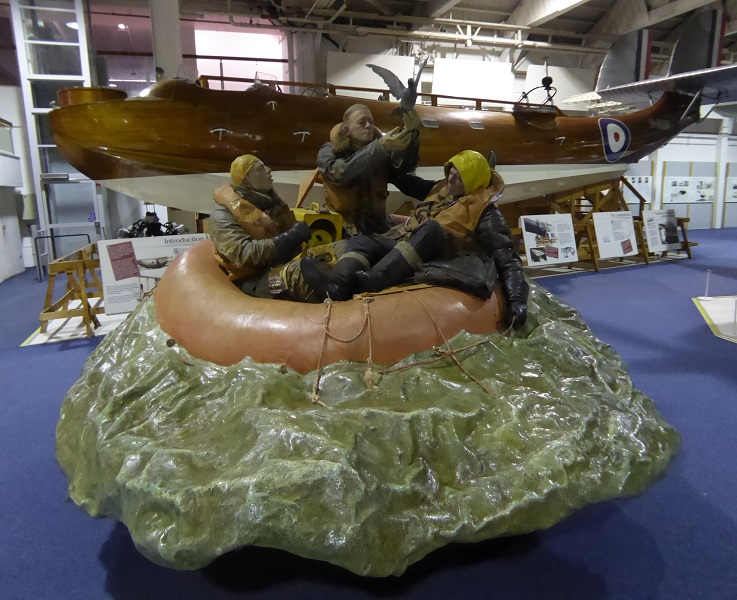
Bailed out into the sea
and releasing carrier pigeon
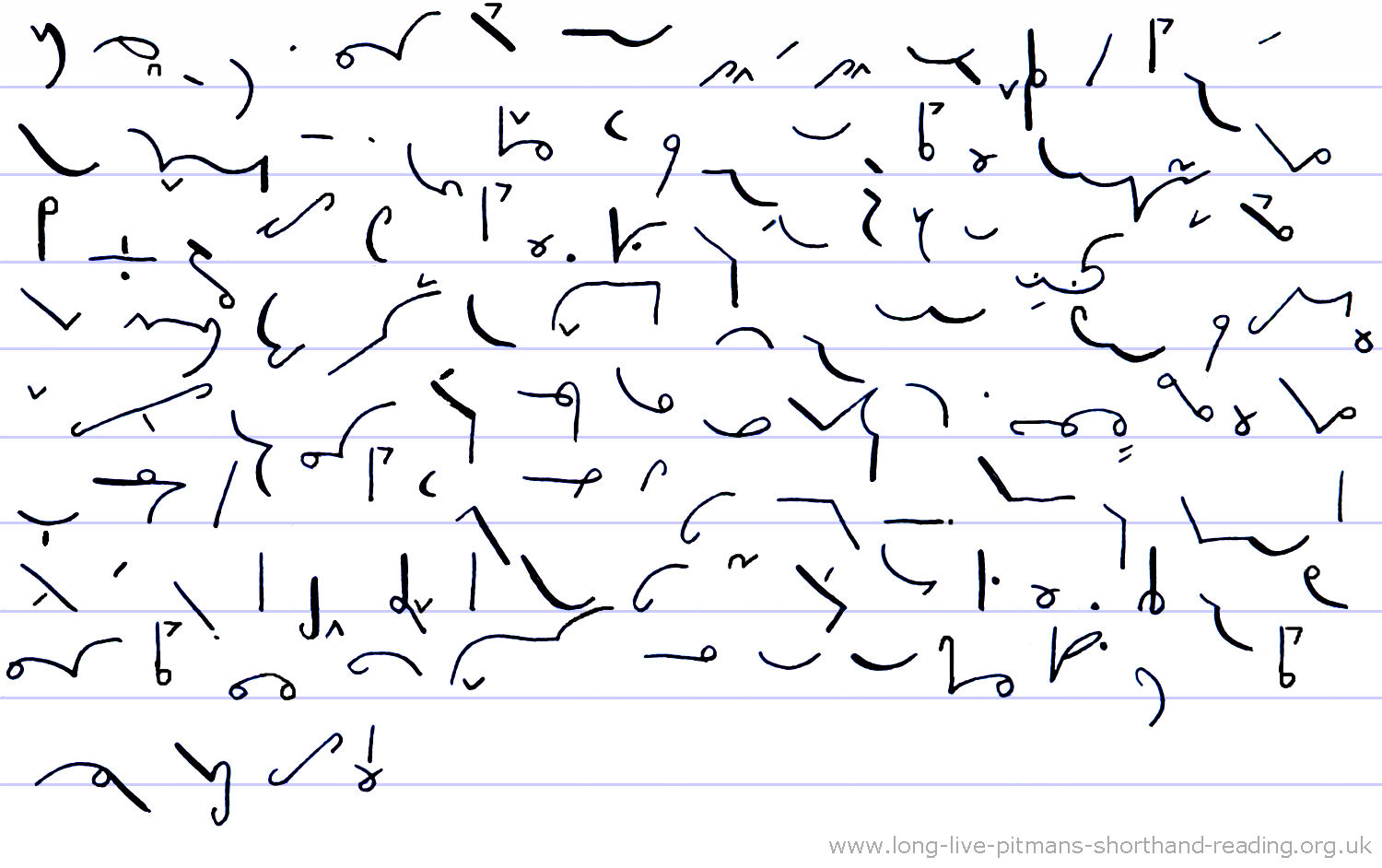
I was amused* to
see a small boy going round and round, unable to decide which toy to
have and being reminded quite a few times that he could have any two
toys. Eventually the parents said OK two planes and one other toy. The
delay paid off, although I think not intentional on the boy’s part, and
I am sure they would really have liked him to have anything and
everything he wanted. I wonder if they secretly bought extra for his
next birthday or a Christmas surprise. Parents know exactly which toy
that should be because the child will keep coming back to it, picking it
up and putting it down, despite it being well beyond the budget for the
day. The decision to have several small toys seems more likely, because,
in language terms at least, three toys must be better than one!
* "amused" and
"amazed" Always insert the vowel
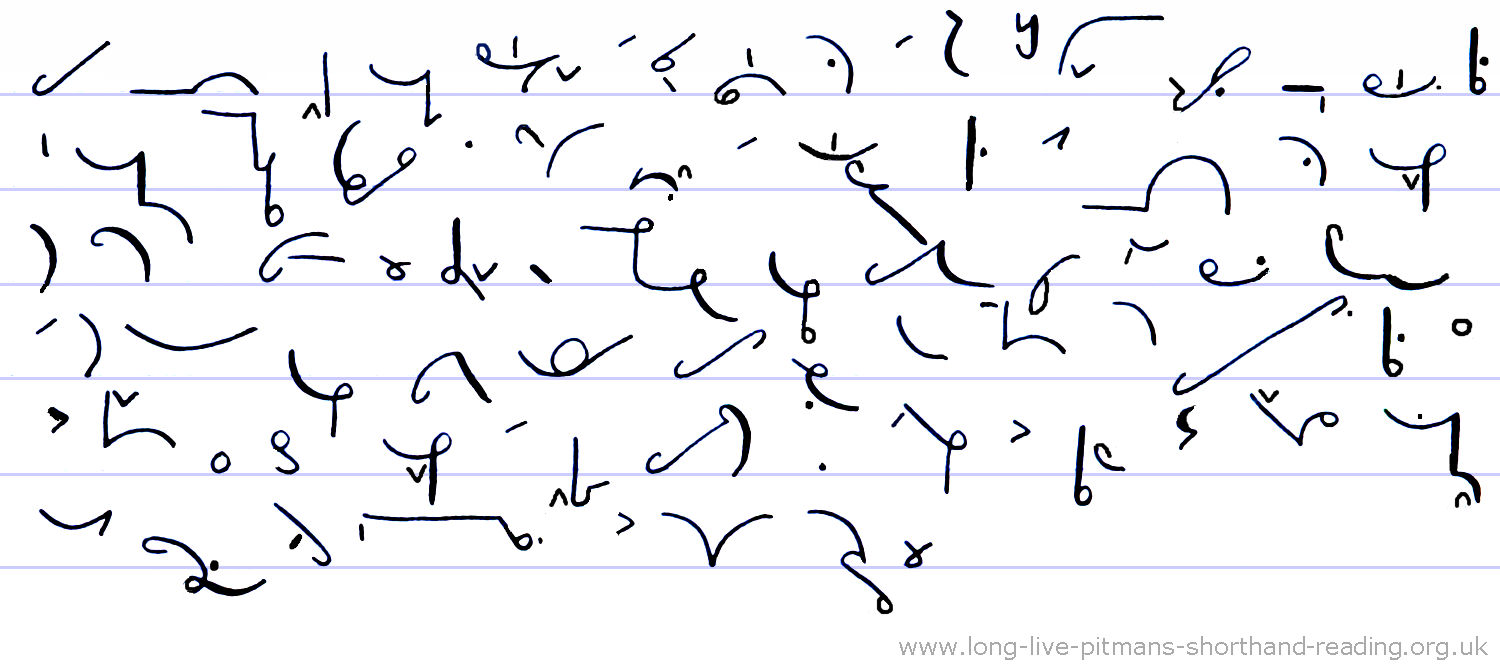
We came out into the sunlight and hot summer air, and although I do not
like to waste good sunny days on indoor activities, this was a
particularly humid and uncomfortable day and the cooler air inside was
very welcome. Despite two extensive visits, we have still not seen
everything and so another visit will be necessary, one to save for
autumn or winter days, as all the time is spent inside and out of the
weather, the opposite of the discomfort that the pilots endured in the
freezing* open
cockpits of the early airplanes. (1402 words)
* "freezing"
and "frozen" Always insert the first vowel, as they are similar in
outline and meaning
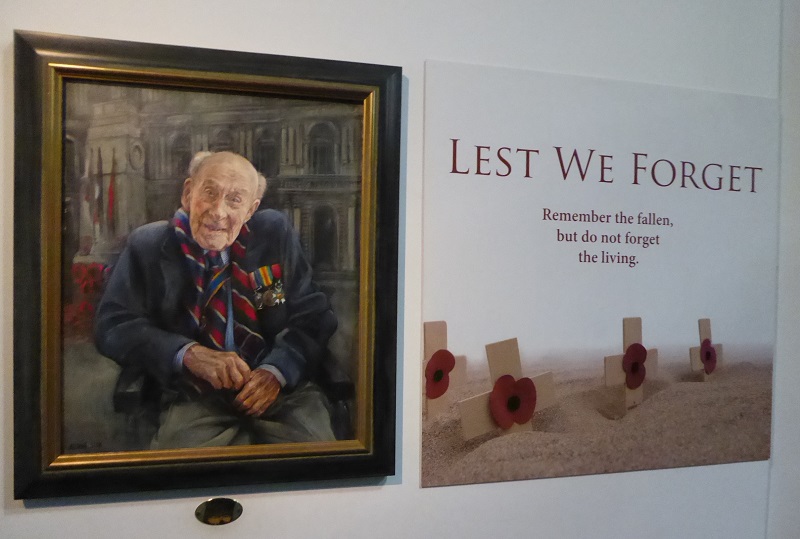
Top of page
Short Letters 8 (29 July 2016)
All these
paragraphs are 100 words each, so if you can write one of them from
dictation in one minute (and read it back accurately) you will have
smashed through the 100 wpm barrier!
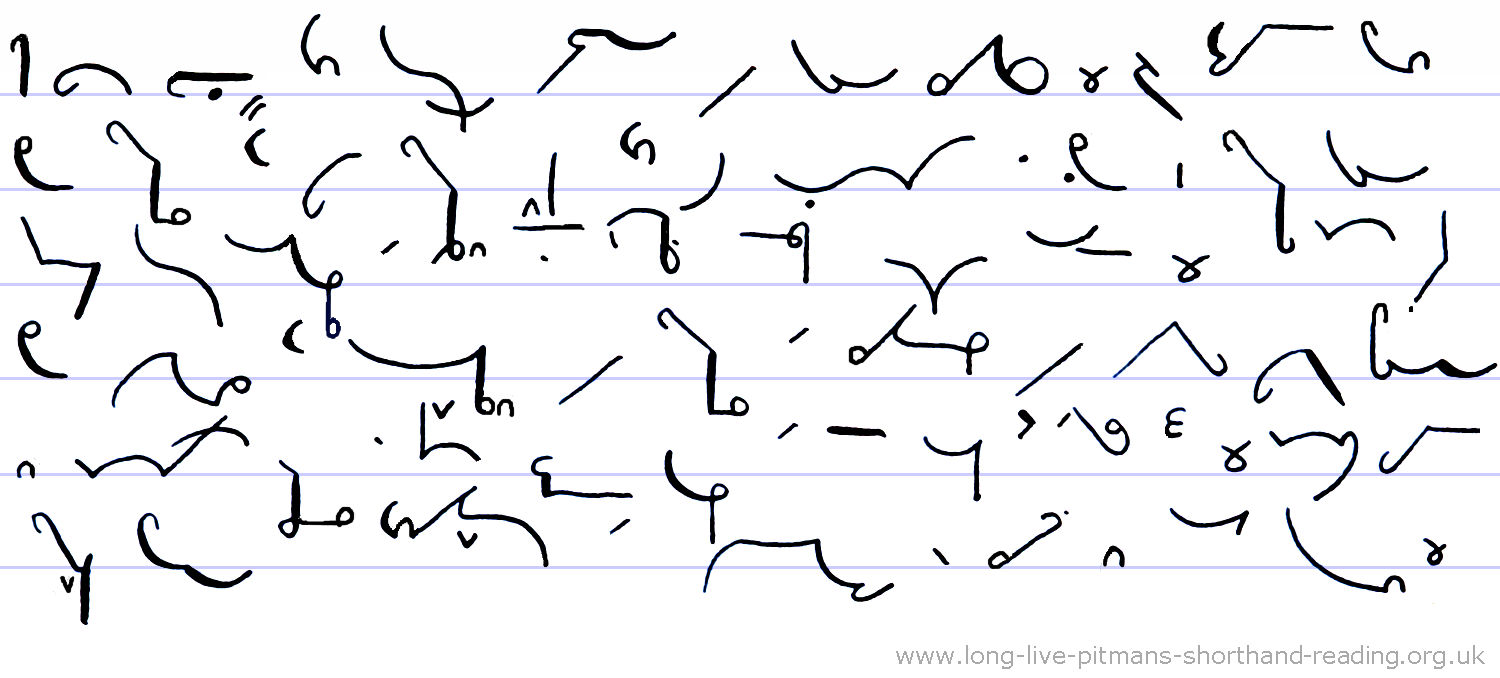
Dear Mr Gray, Thank
you for your enquiry regarding our financial services. I believe that we
can offer you several products that will produce the outcome that you
wish, namely a safe but productive financial package for your
investments, and a modest extra yearly* income.
I am attaching several leaflets that introduce our products, and as
requested our representative will be telephoning you tomorrow morning to
discuss a time when he can visit and go into all the options with you. I
am sure we can provide everything that you require and look forward* to
serving you in the future. (100 words)
* "yearly"
Keep clearly through the line, as "early" could also make sense in this
context
* Omission phrase "look fo(r)ward"
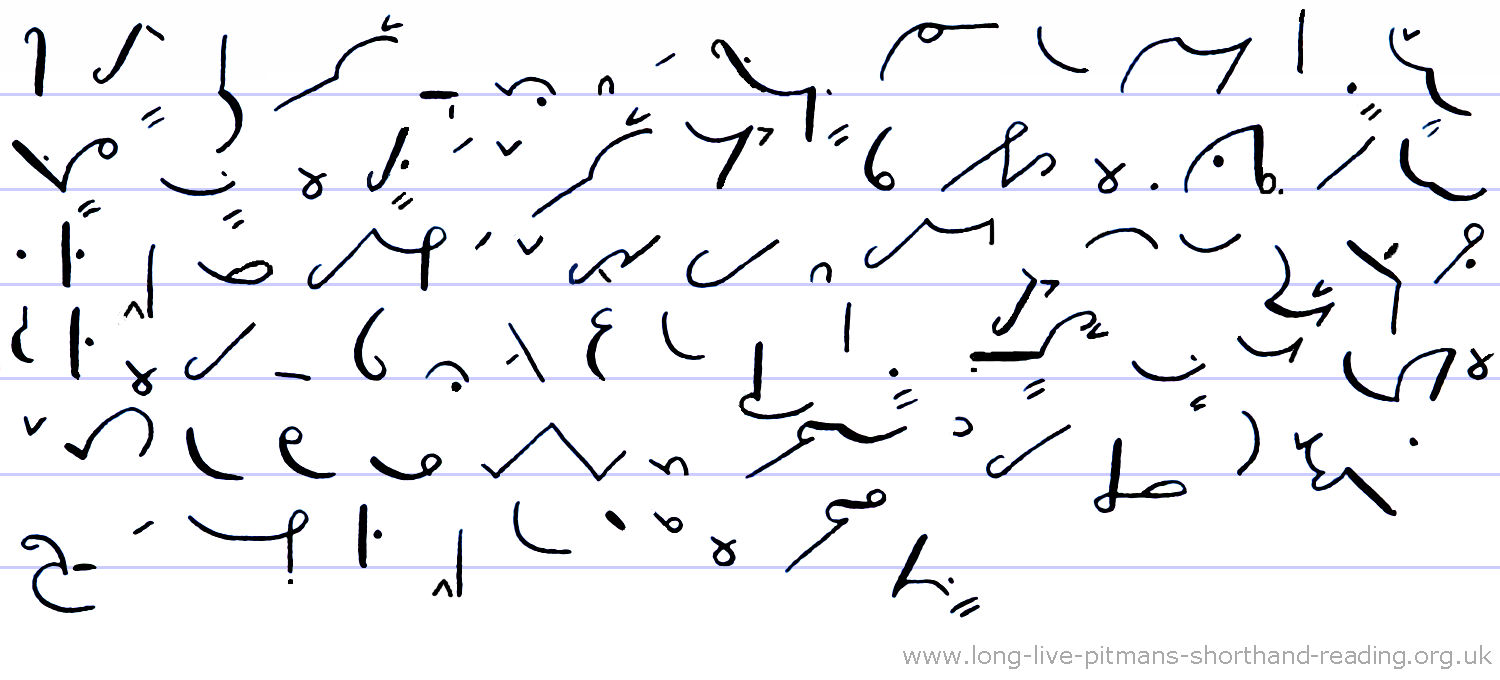
Dear John, It was really good to meet you and Brenda last week* for
lunch at The Five Bells Inn. Jane and I really enjoy this restaurant.
The ladies are having a day out next Wednesday and I wondered whether
you wanted to join me in seeing the boat race on that day. We could* then
meet up with them for dinner at The Galleon Inn in the village. I also
have several things to report to you regarding what we discussed, so I
think it would be a fruitful and interesting day out for all of us.
Regards, Jim (100 words)
* Omission
phrase "las(t w)eek"
* "we could" Not phrased, so that it is not misread as "we can"
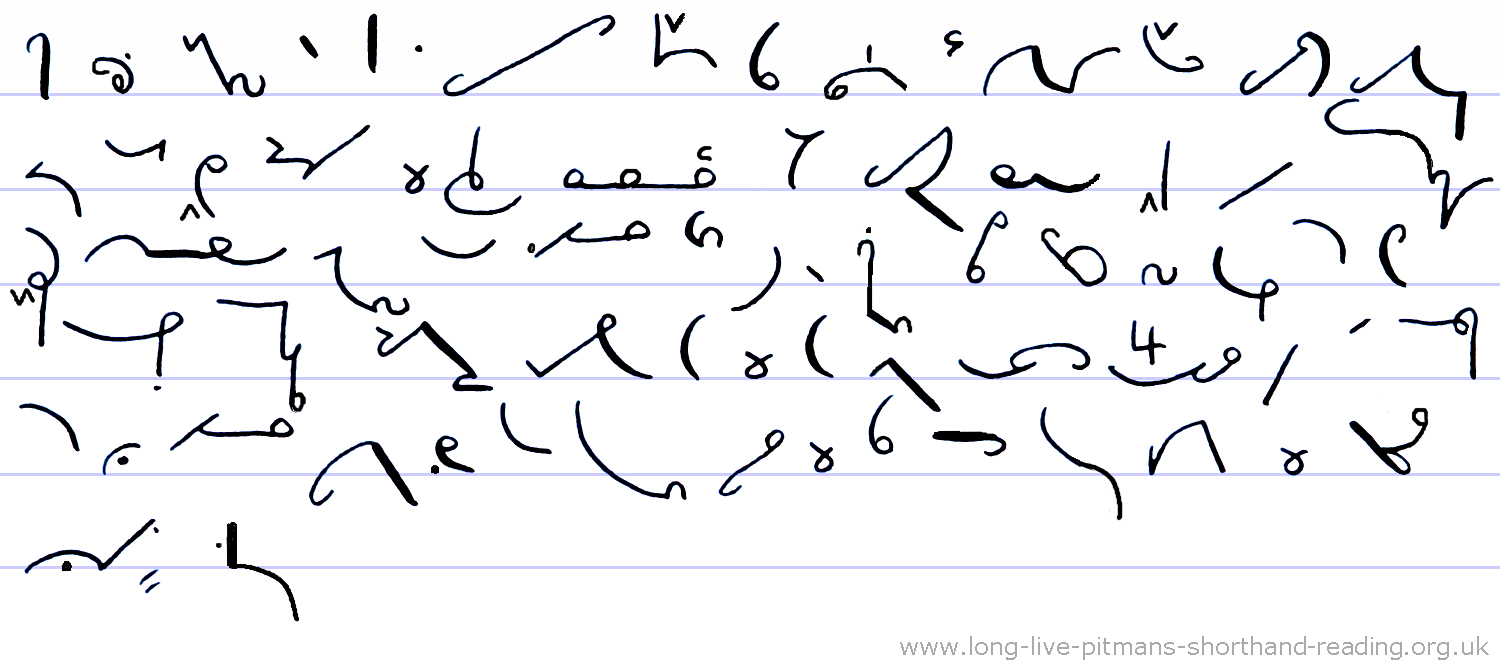
Dear Friends, I hope you have* all
had a wonderful time this summer, with the lovely fine weather we have
had here in the south of the country. It is only* six weeks* until
we shall be sending out our quarterly society magazine and if you have
any articles that you wish to contribute, such as places you have
visited or other interesting activities, I would be glad to receive
them. They should be no more than 400 words each, and extra or late
articles will be saved for future use. Thanks again for your help. Best
wishes*,
Mary, Editor*
(100 words)
* Omission
phrases "I (h)ope you have", "six (w)eeks" (The W sign is helpful but
could be omitted)
* "it is only" On its own, "only" is written with full N and L strokes
* "Best wishes" Upward Ish to make a join
* "Editor"
Special distinguishing outline vs "debtor"
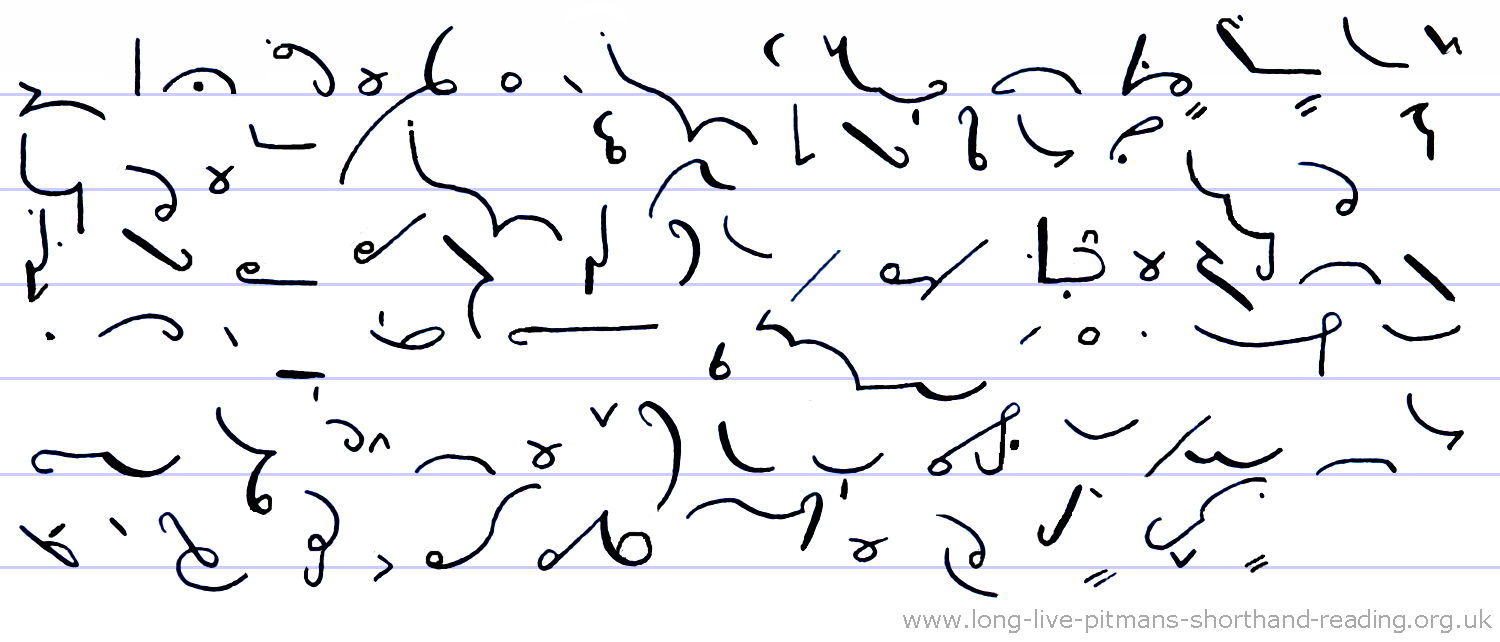
To whom it may concern. This letter* is
to confirm that I have known Mr James Black for about twenty years. I
can confirm that he has lived at the above address for the last 15 years
and that he attended the above school, as we both attended there for our
secondary education. I believe him to be a man of good honest character,
who is hardworking and has an interest in caring for those around him. I
therefore have no hesitation in recommending him for the post of
Personal Assistant to the Social Services Manager. Yours faithfully,
John Whiteley (100 words)
* "This
letter" Downward L to make the join possible
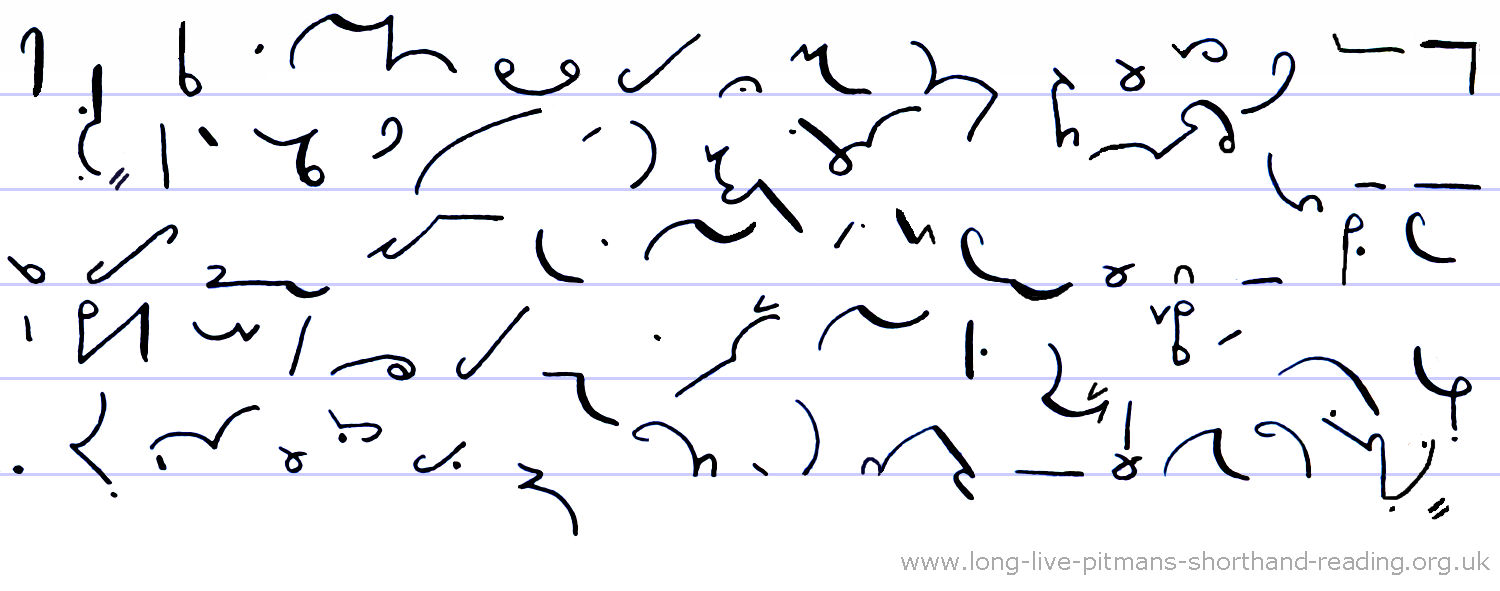
Dear Edith, It is a long time since we met and I have so much to tell
you. I am not sure I can get it all in this short letter and so I think
it would be absolutely marvellous if you could* come
to us one weekend and we can have a long chat about everything. You
could stay over on Saturday night, which means we could have* a really
long day seeing the sights and maybe visiting the shopping mall. I can't
wait to hear from you to say you will be able to come! Love from
Patricia (100 words)
* "could" Not
phrased with the preceding words, so that it is not misread as "if you can"
* "we could have" Not phrased with the "we", so that it is not misread
as "we can"
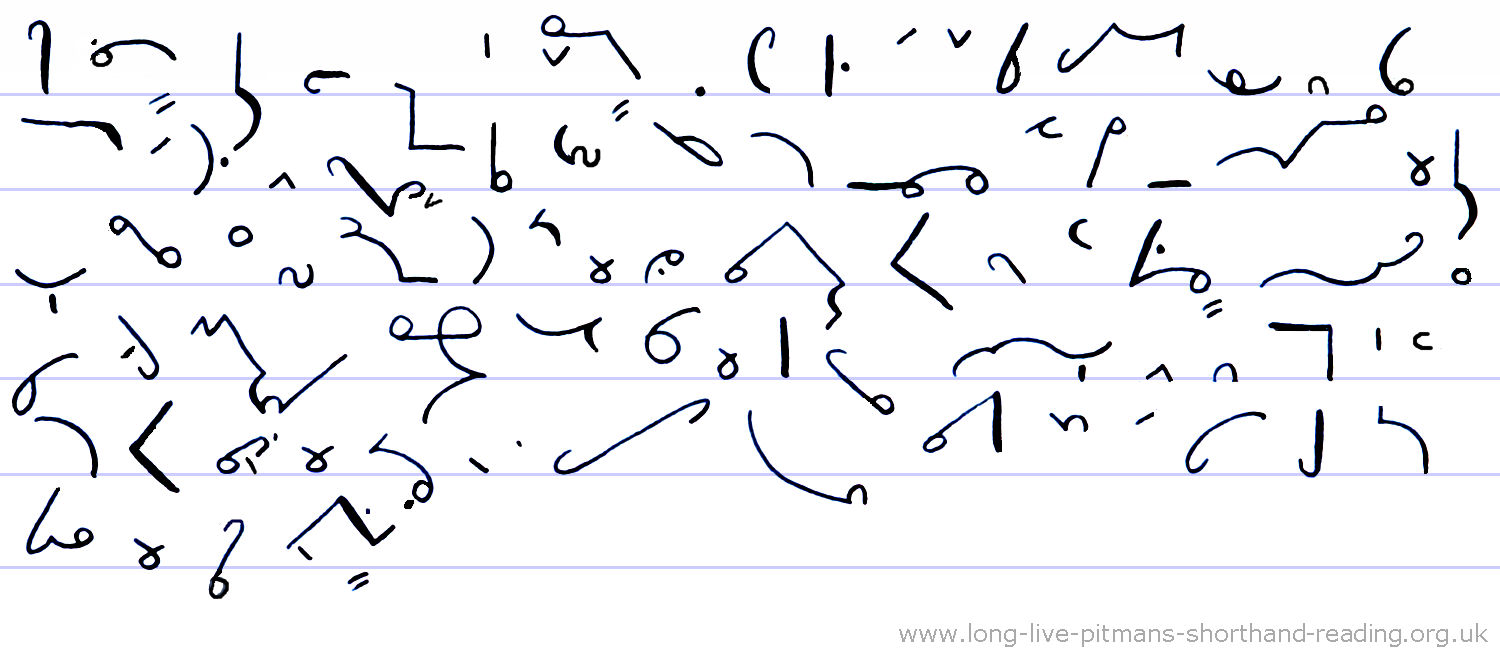
Dear Sam, It was great to talk on Skype the other day, and I just wanted
to send you this card and say how brilliant it is that you have passed
your exams, and with such good marks. It was no surprise, as you have
worked so hard. Let's hope that the job opportunity that James mentioned
is still open, and I hope* that you are successful in that as well. Do
please let me know how you get on with your job hunting. Here's to a
wonderful future ahead of you and well done on your achievements.
Cheers, Robert (100 words)
* Omission phrase "I (h)ope"
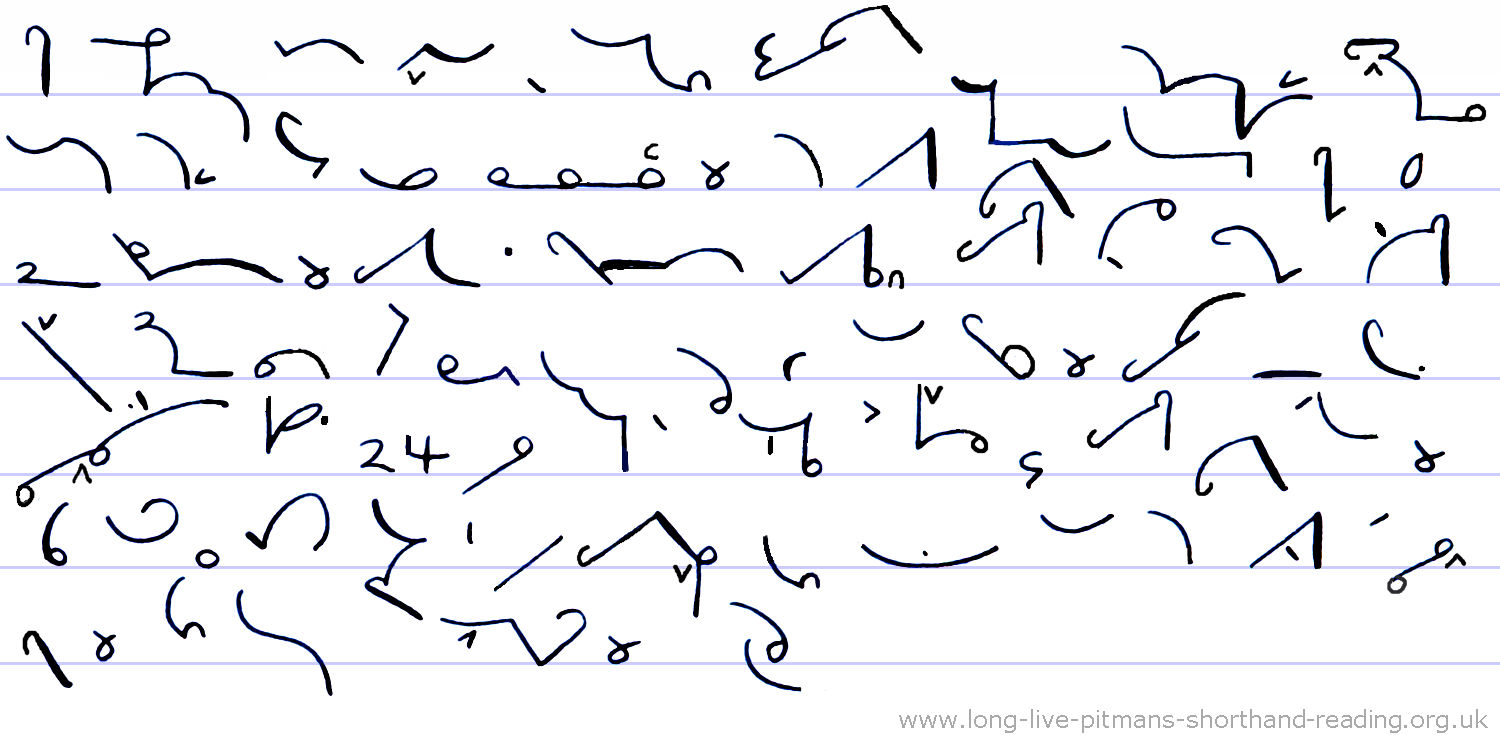
Dear Customer, I am writing to inform you that we will be undertaking
remedial groundworks in your area over the next six weeks*.
Your road will be affected during the first week of September. We have a
programme to reduce water loss from the older pipework, some of which is
now fifty years old in places. We will give every householder at least* 24
hours of notice of the times when the water will be off. This
information is also available on our website, if you enter in your road
and house number. Thank you for your cooperation. Yours faithfully (100
words) (Total 700 words)
* Omission
phrase "six (w)eeks" (The W sign is helpful but could be omitted)
* "at least" and "at last" Advisable to always vocalise these two.
Although only one makes sense here, you would not know that until after
the sentence is finished.
Top of page
|
|
